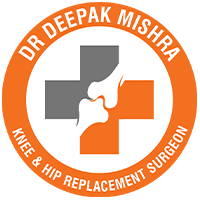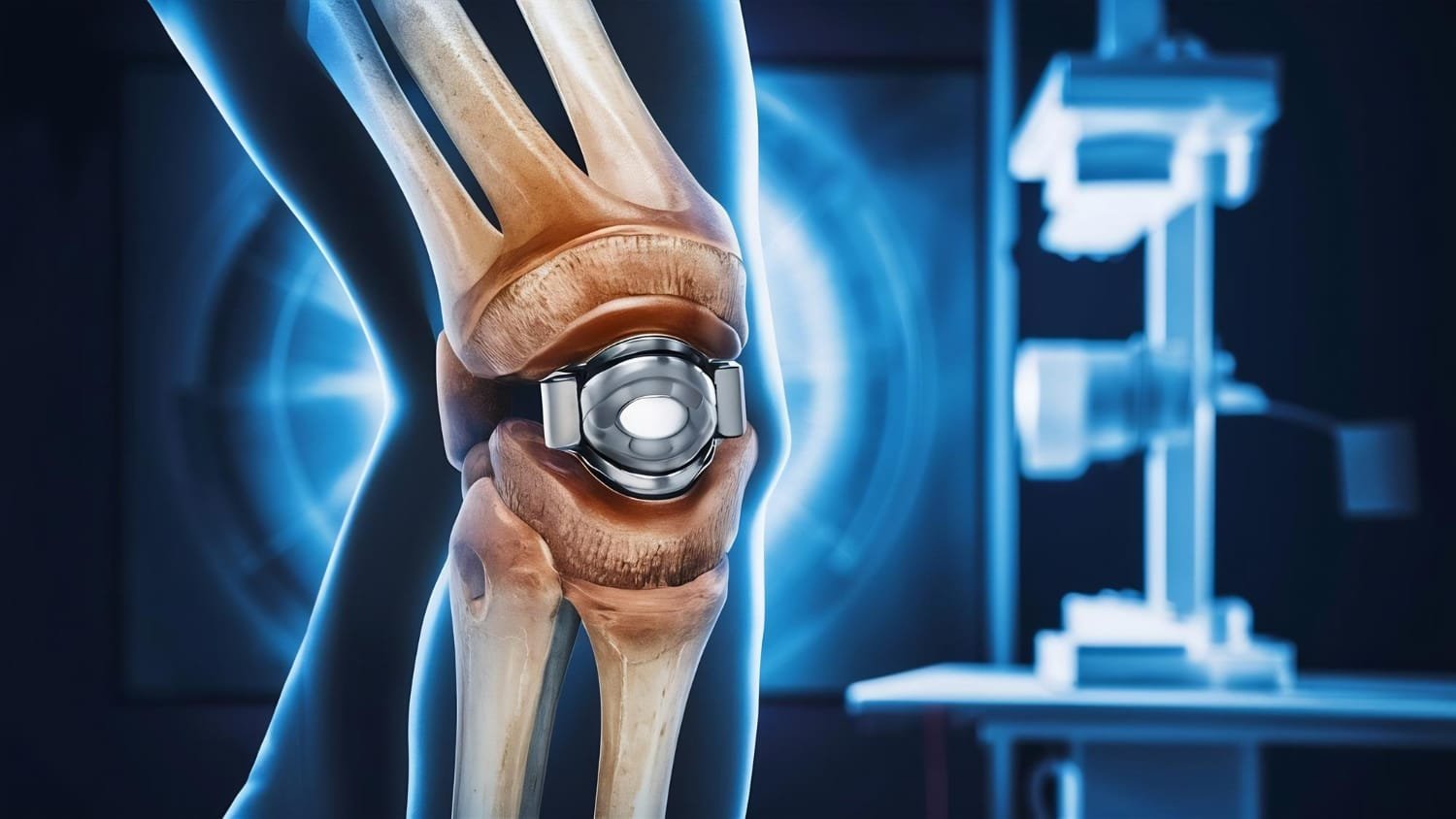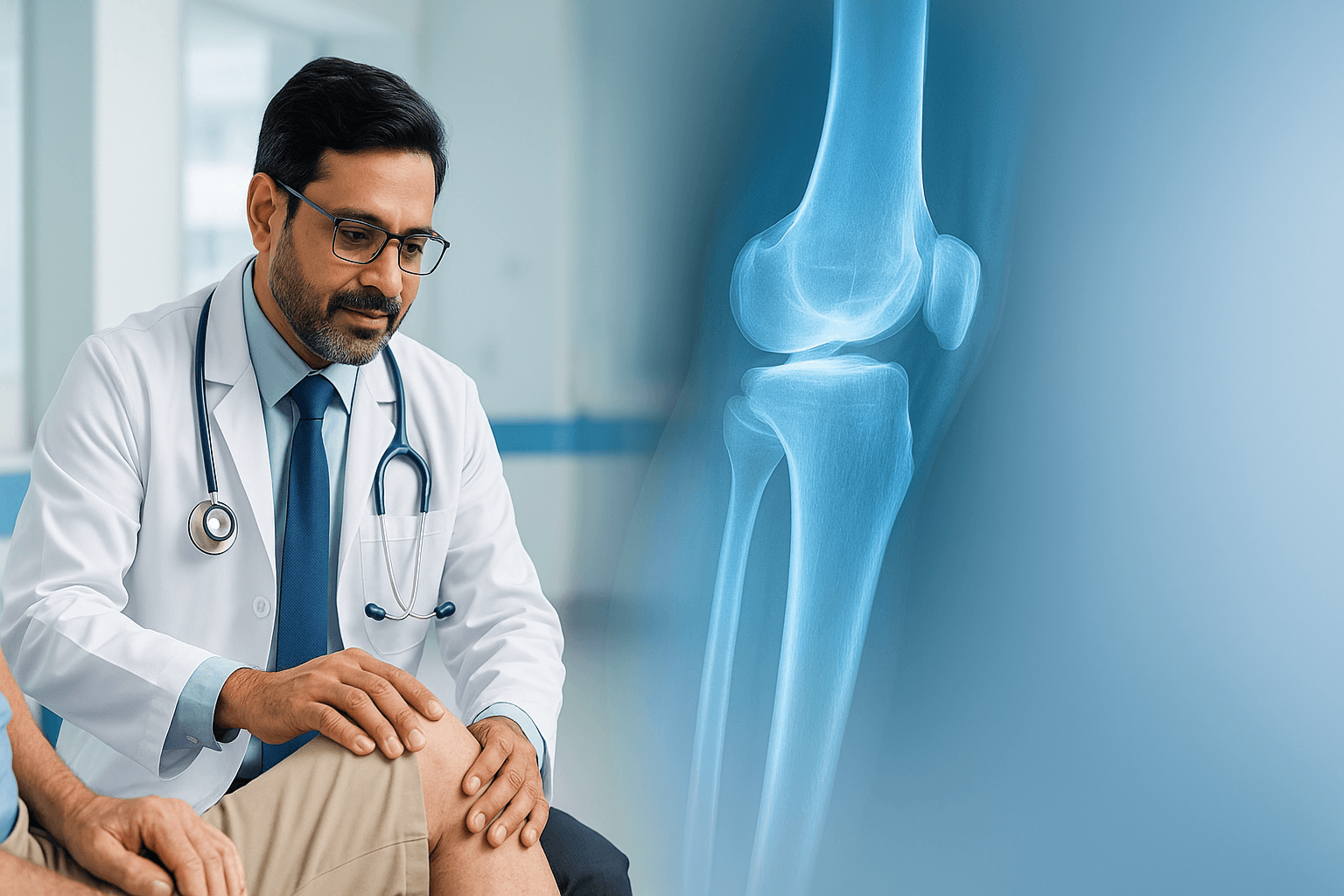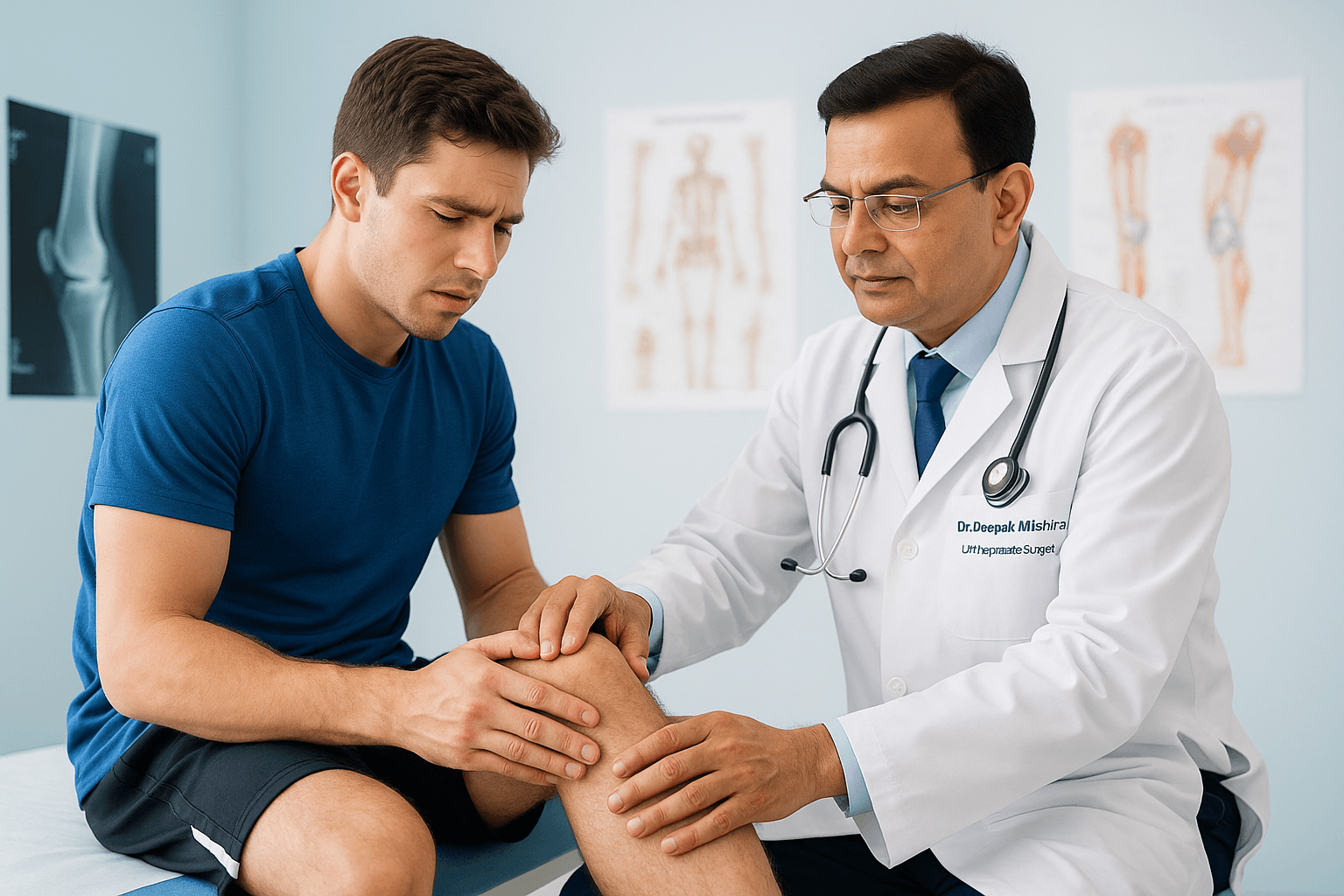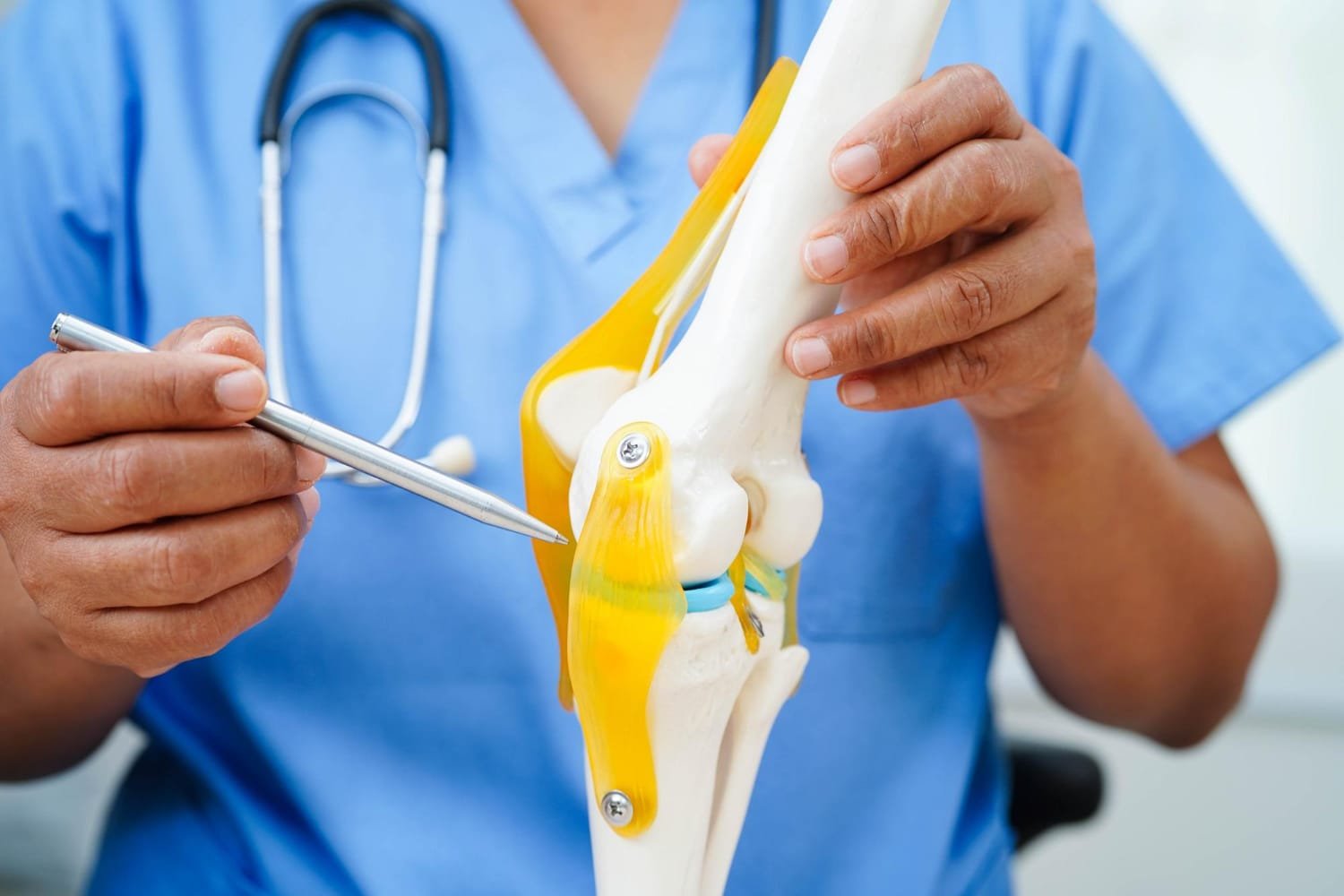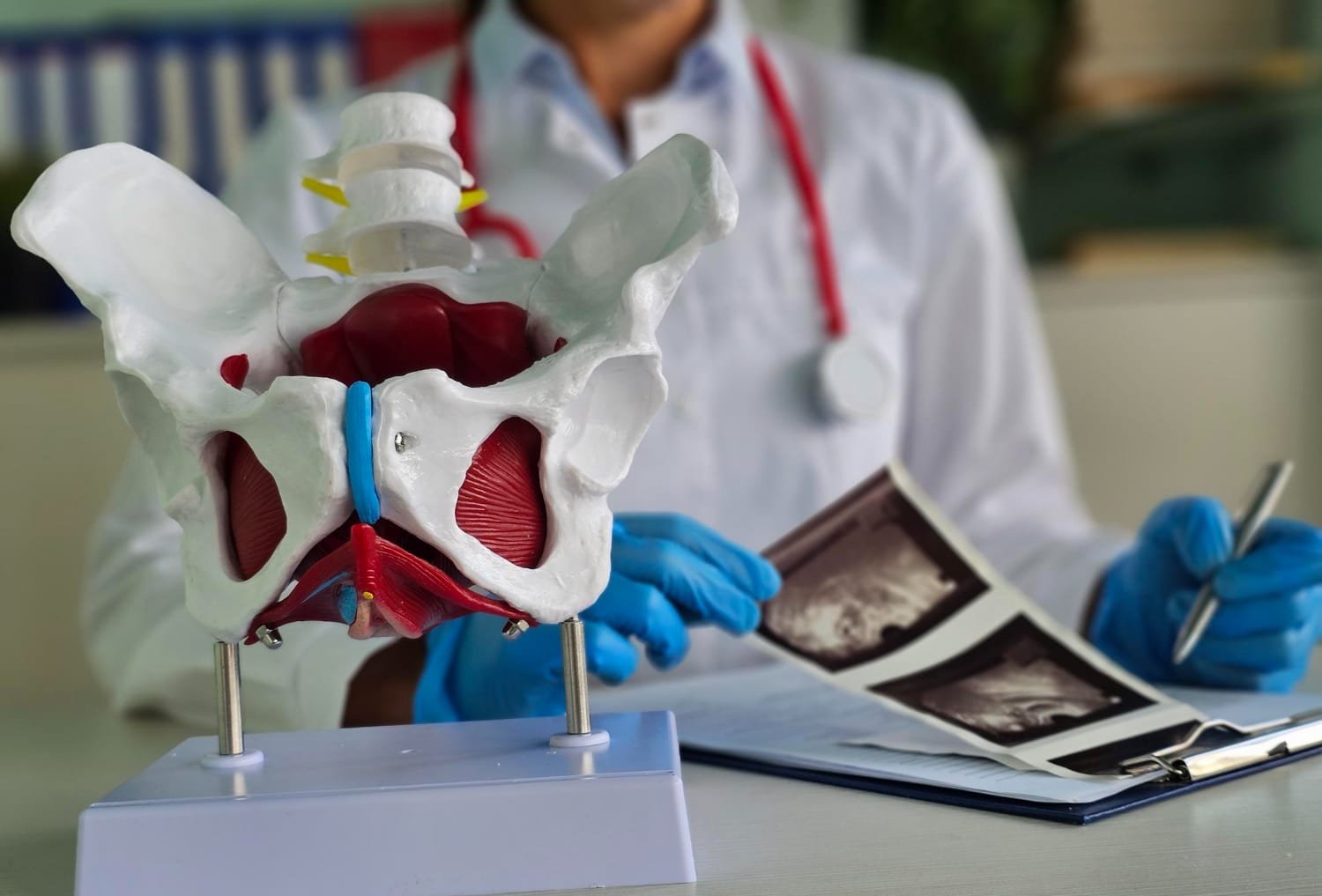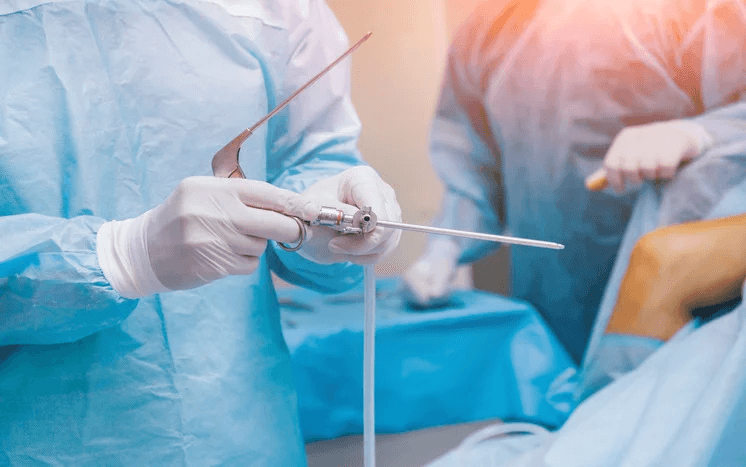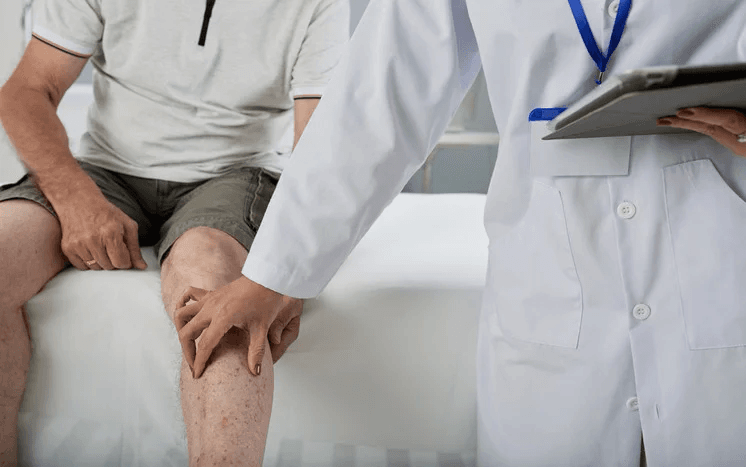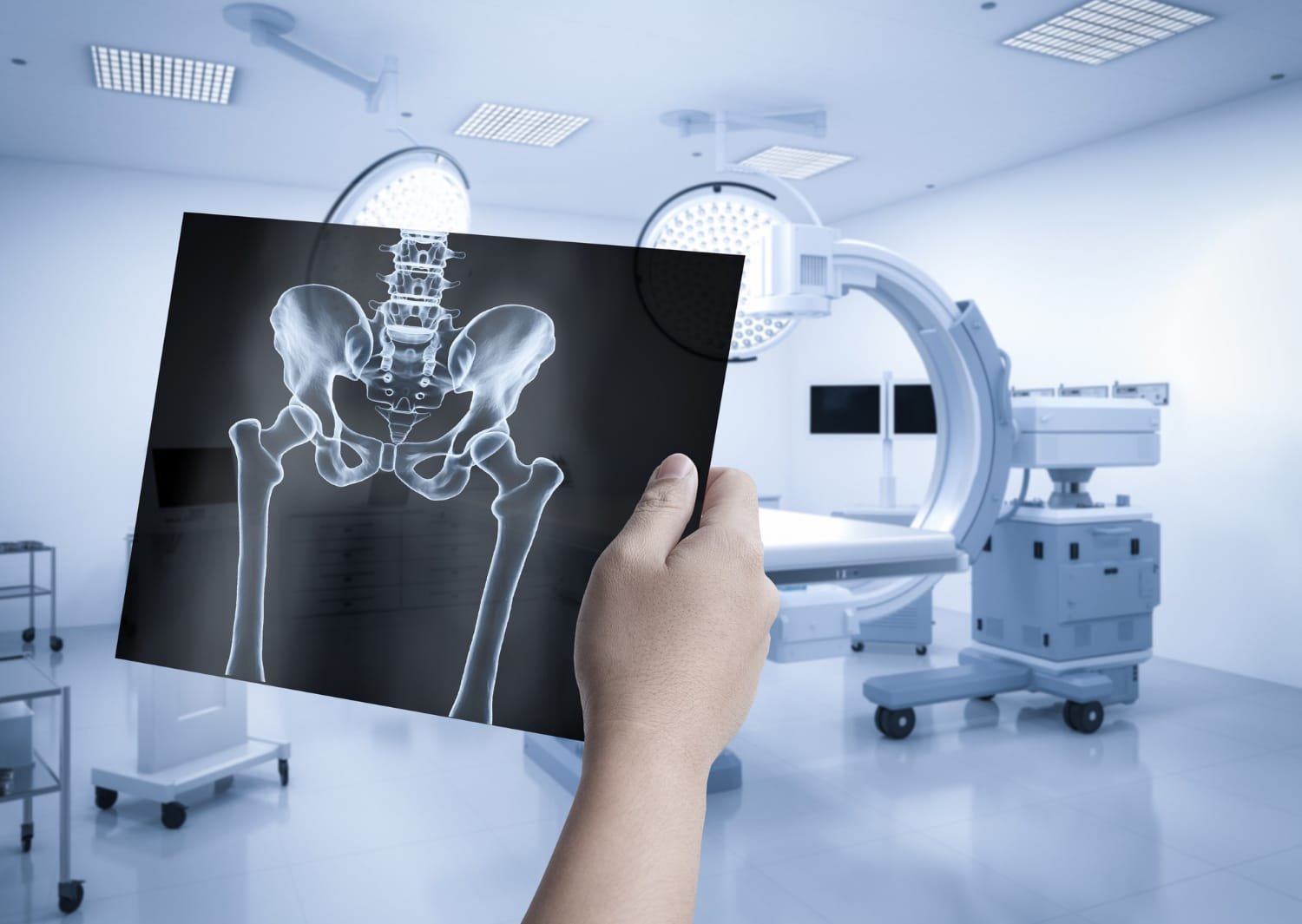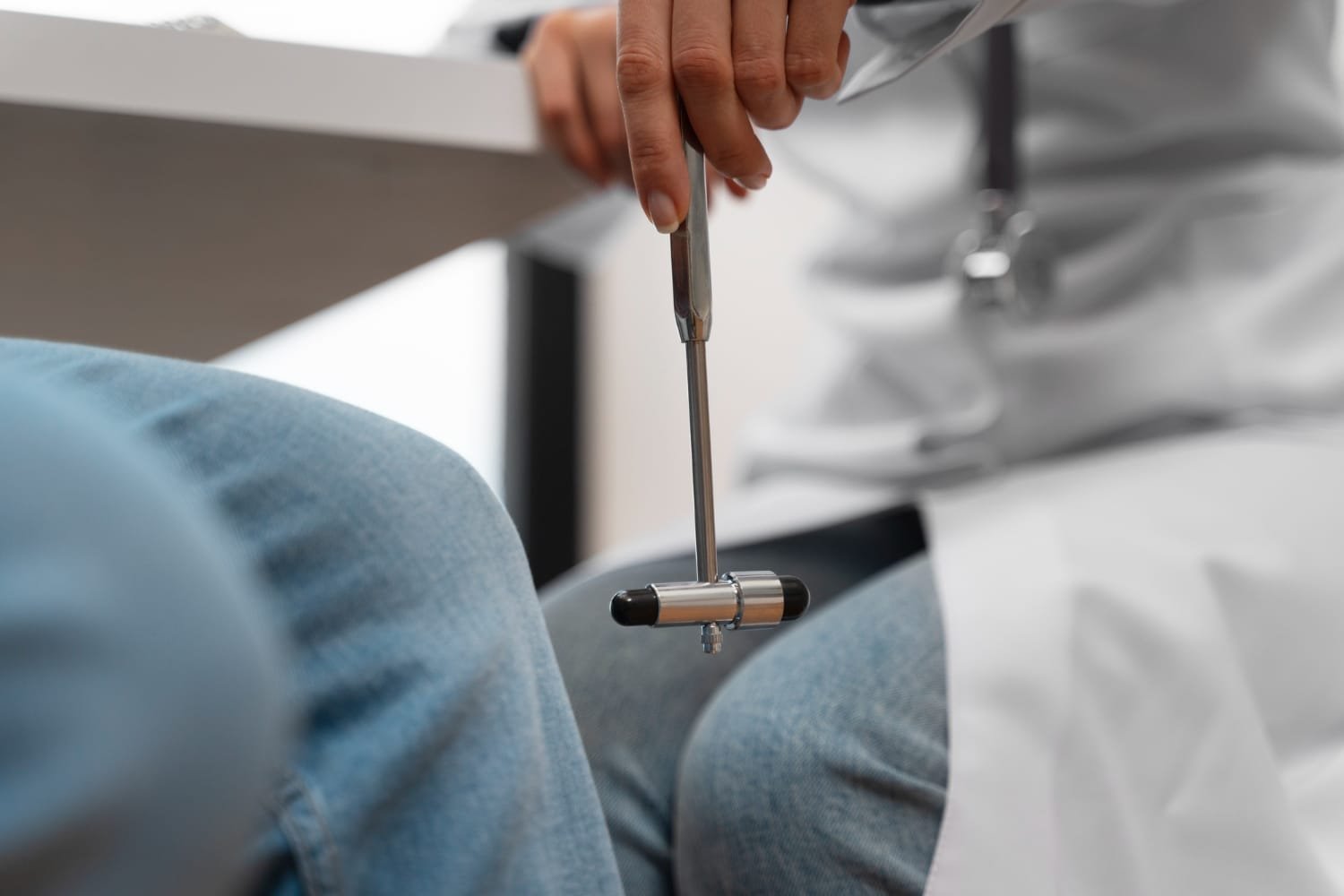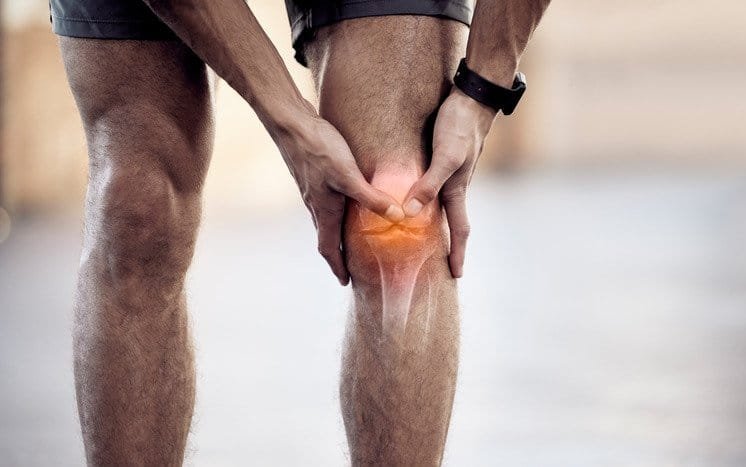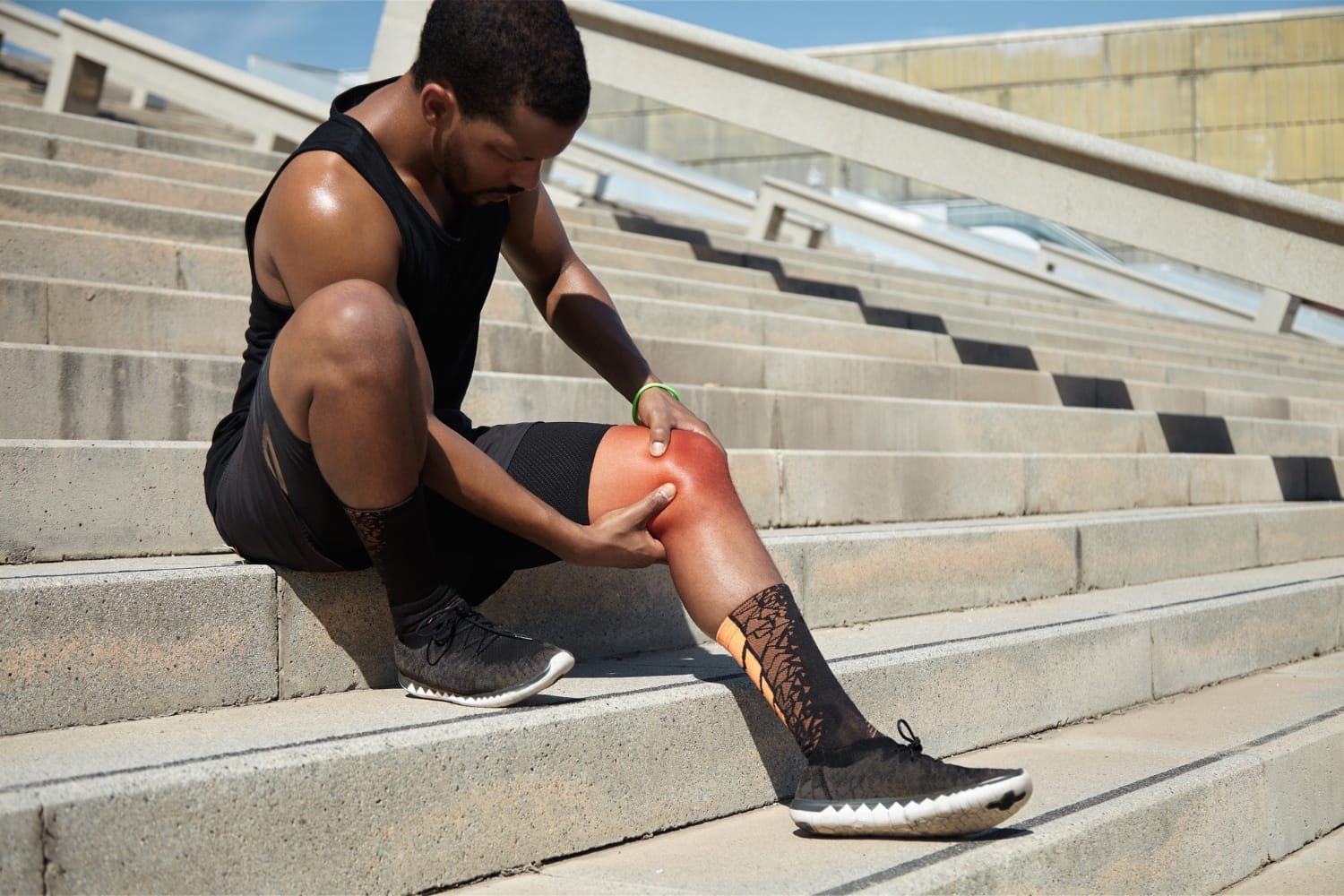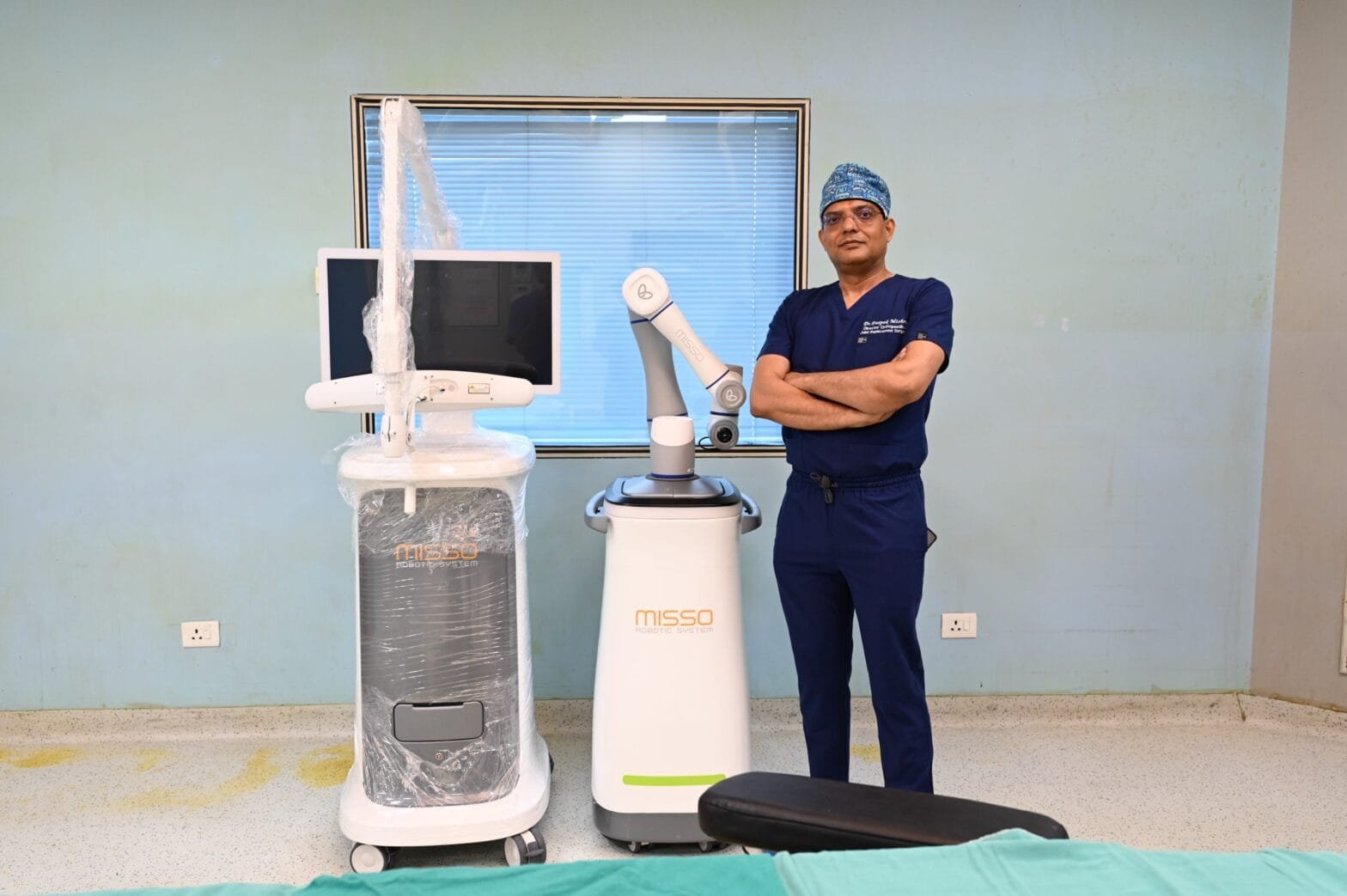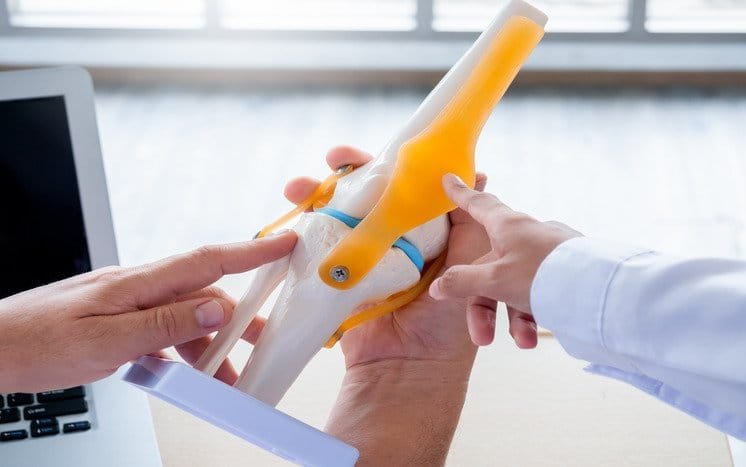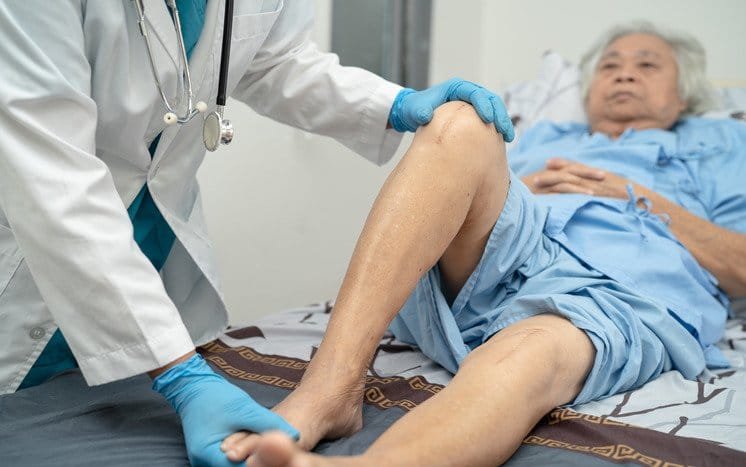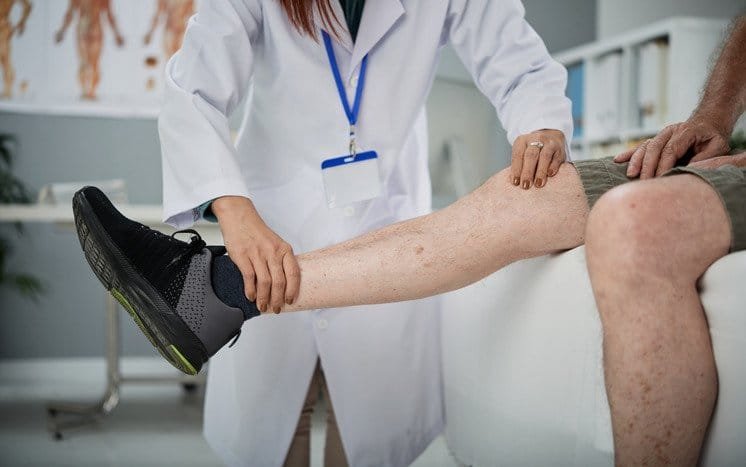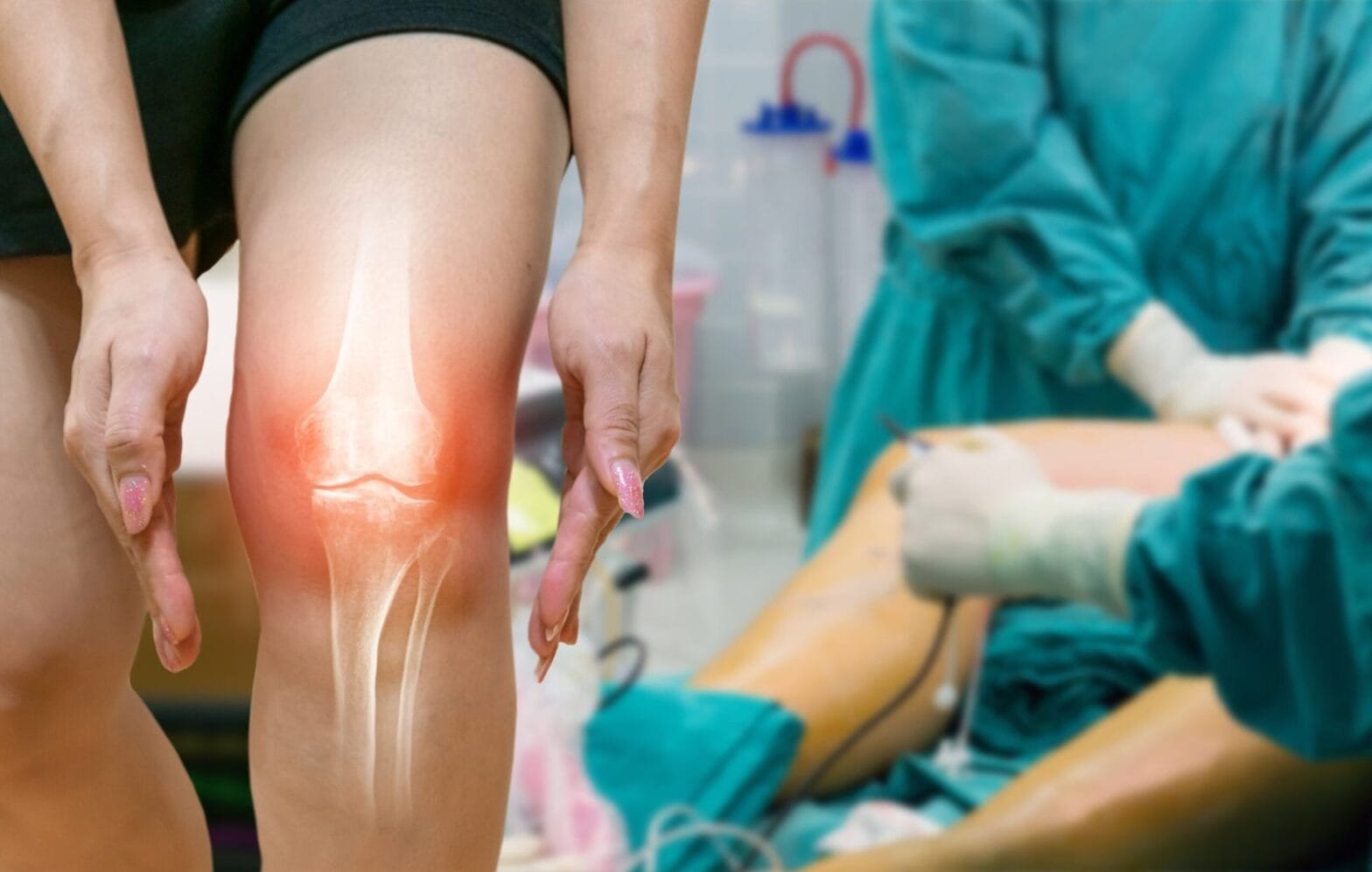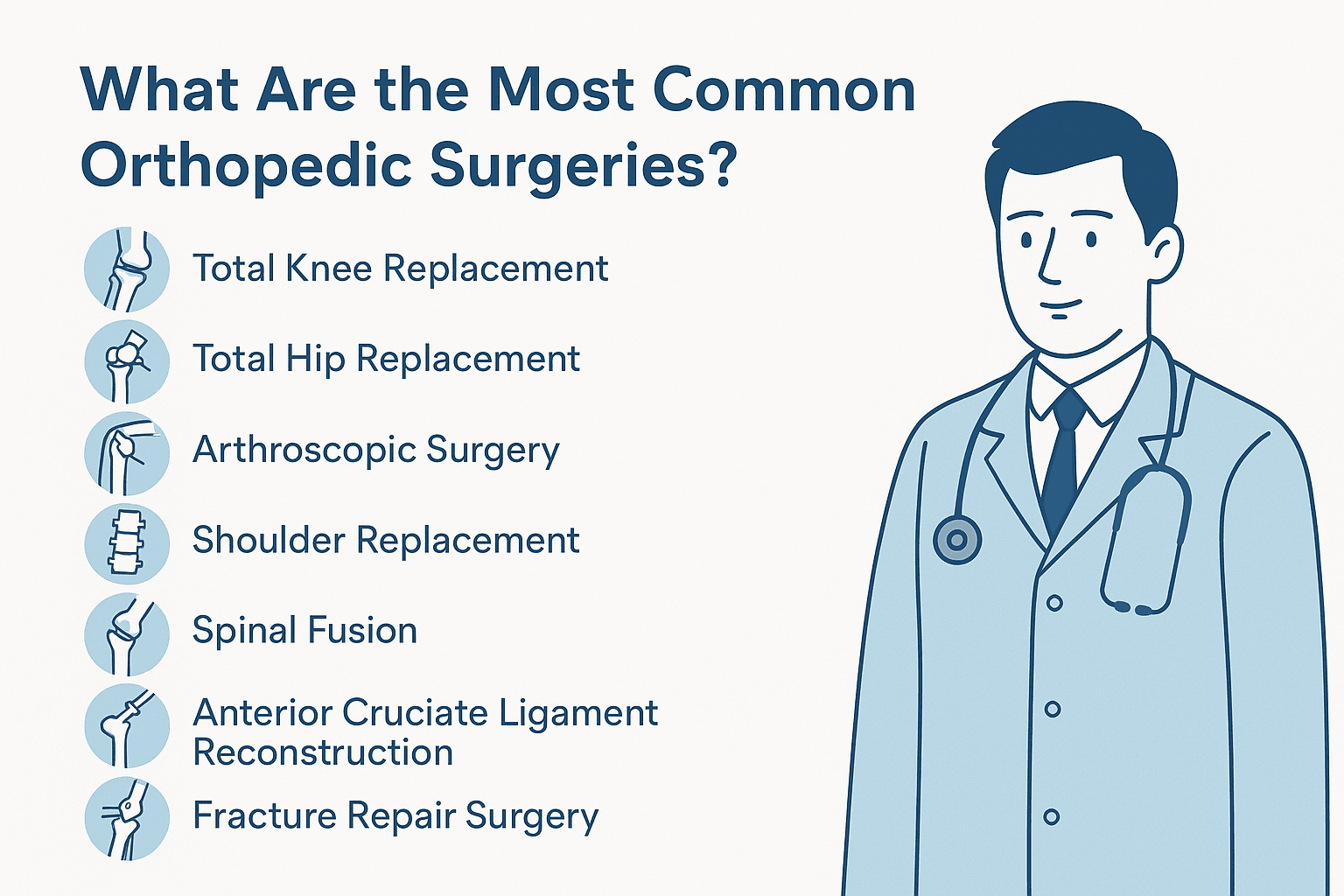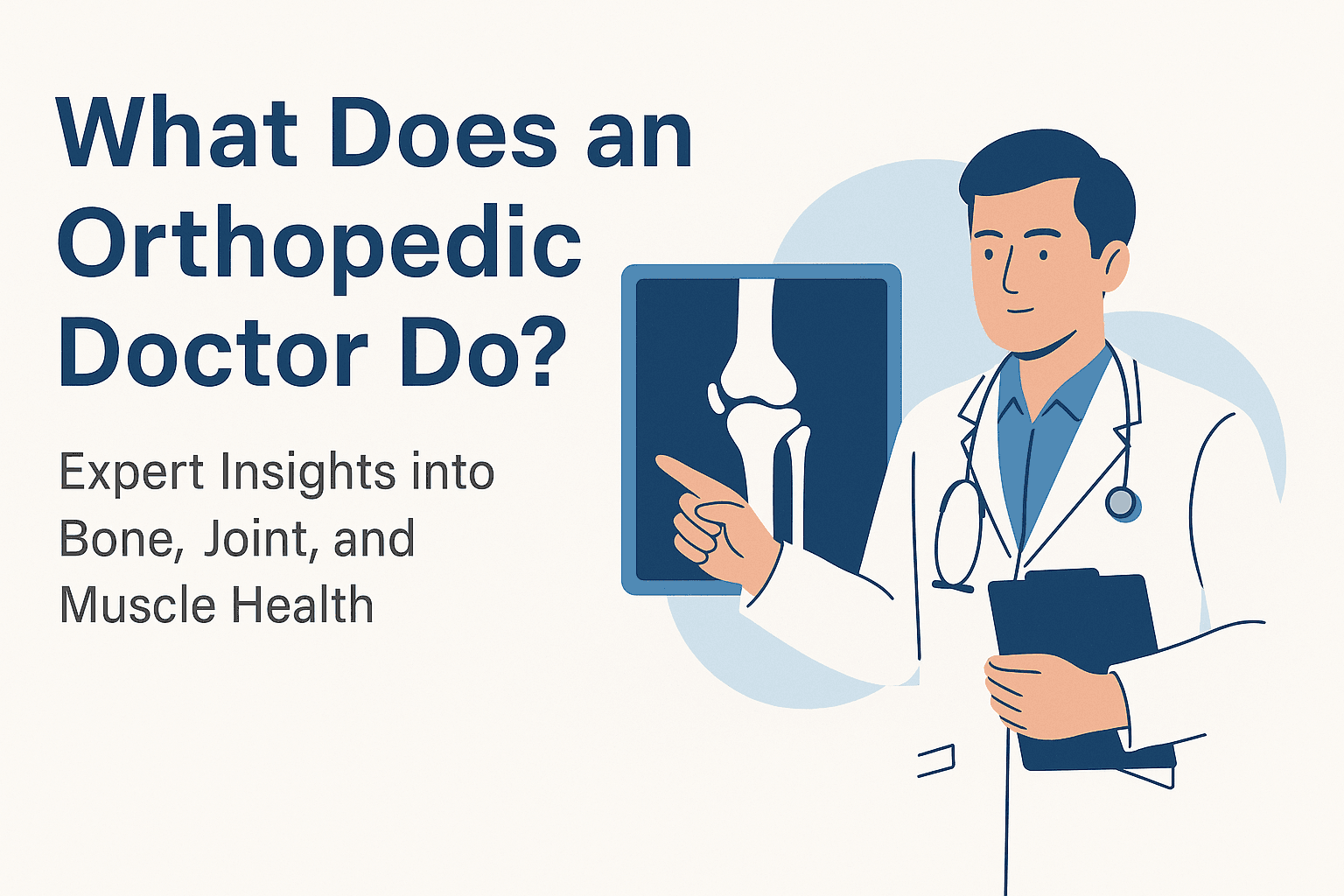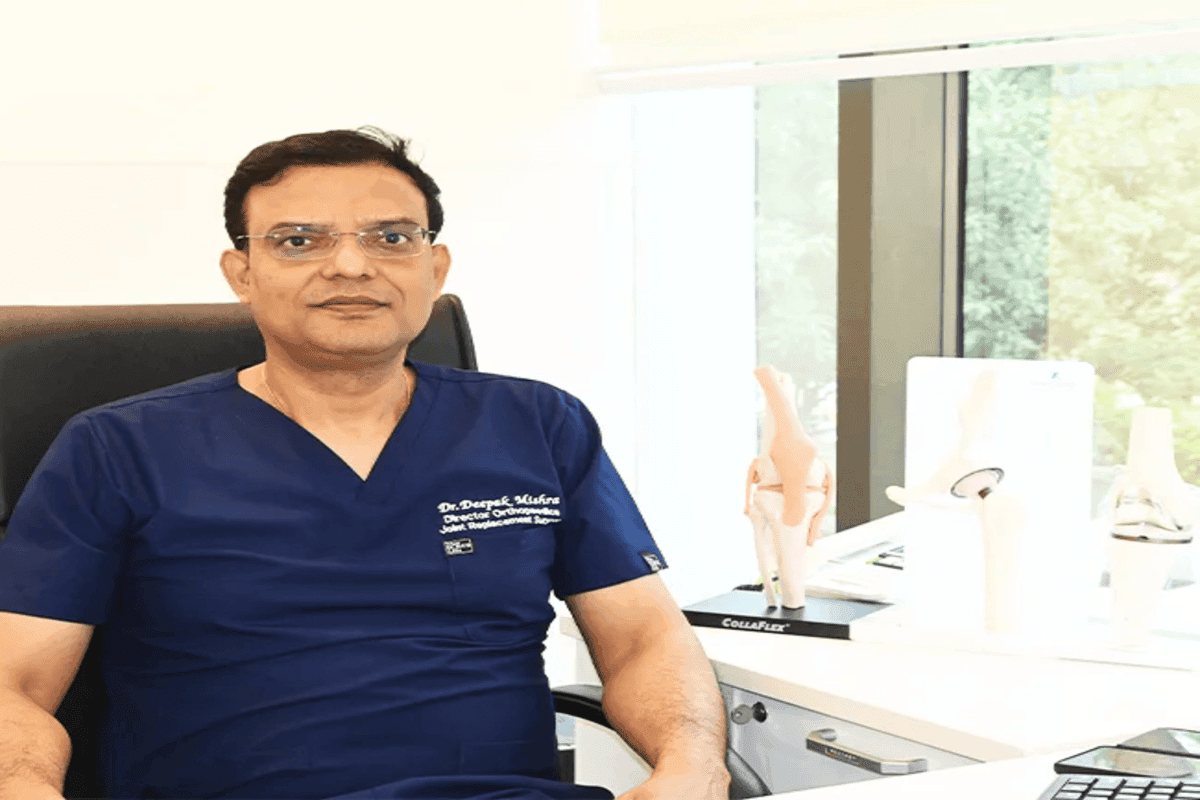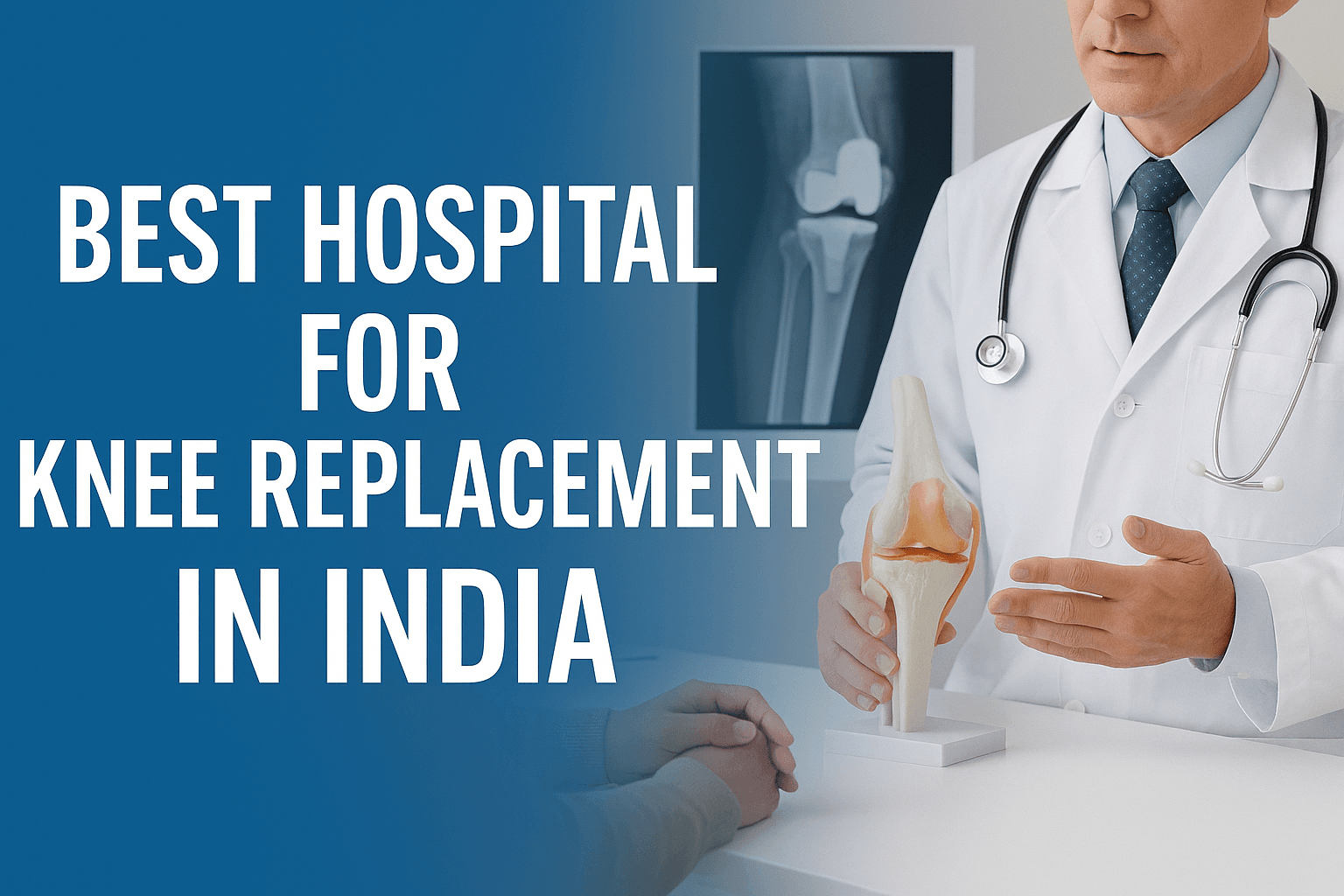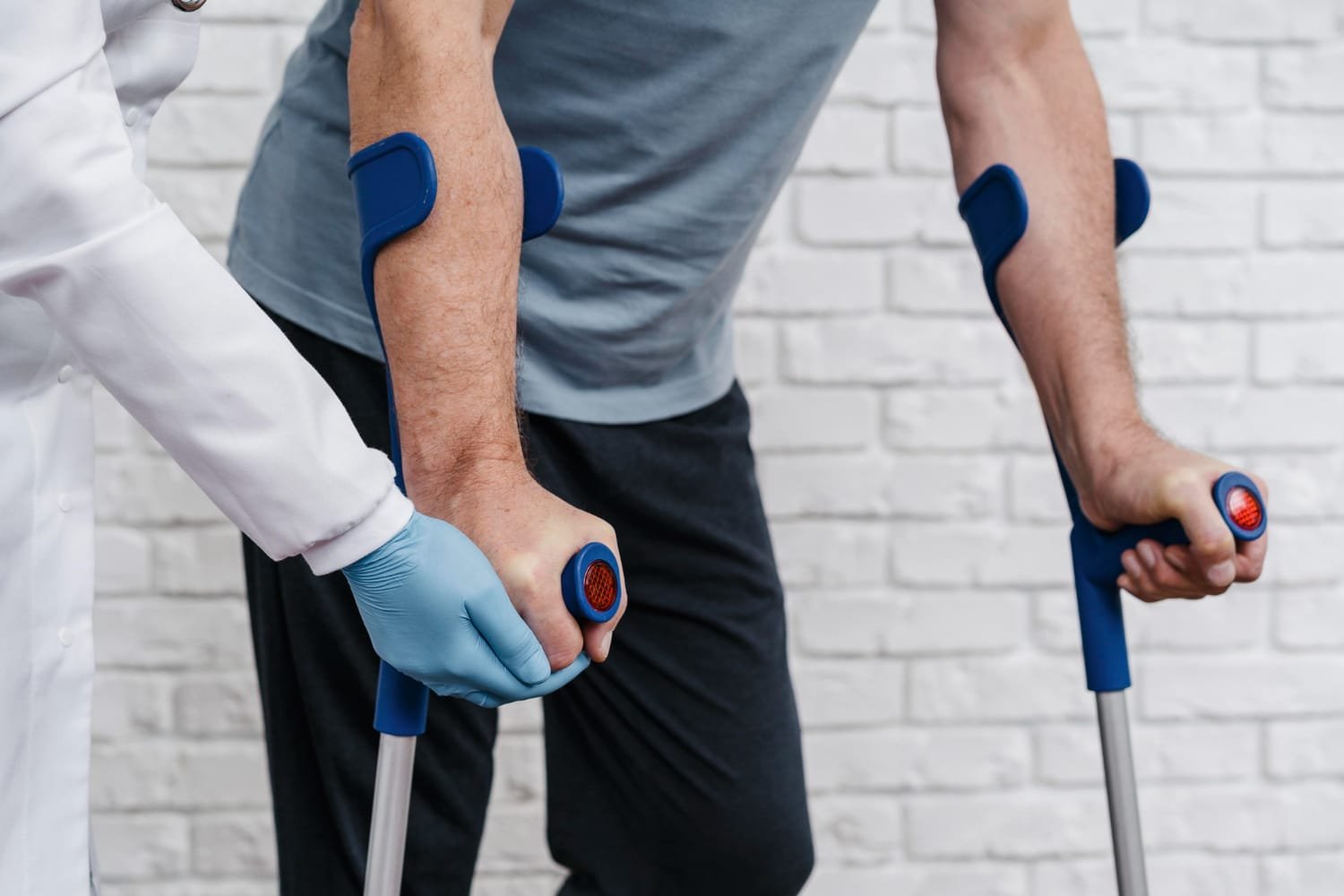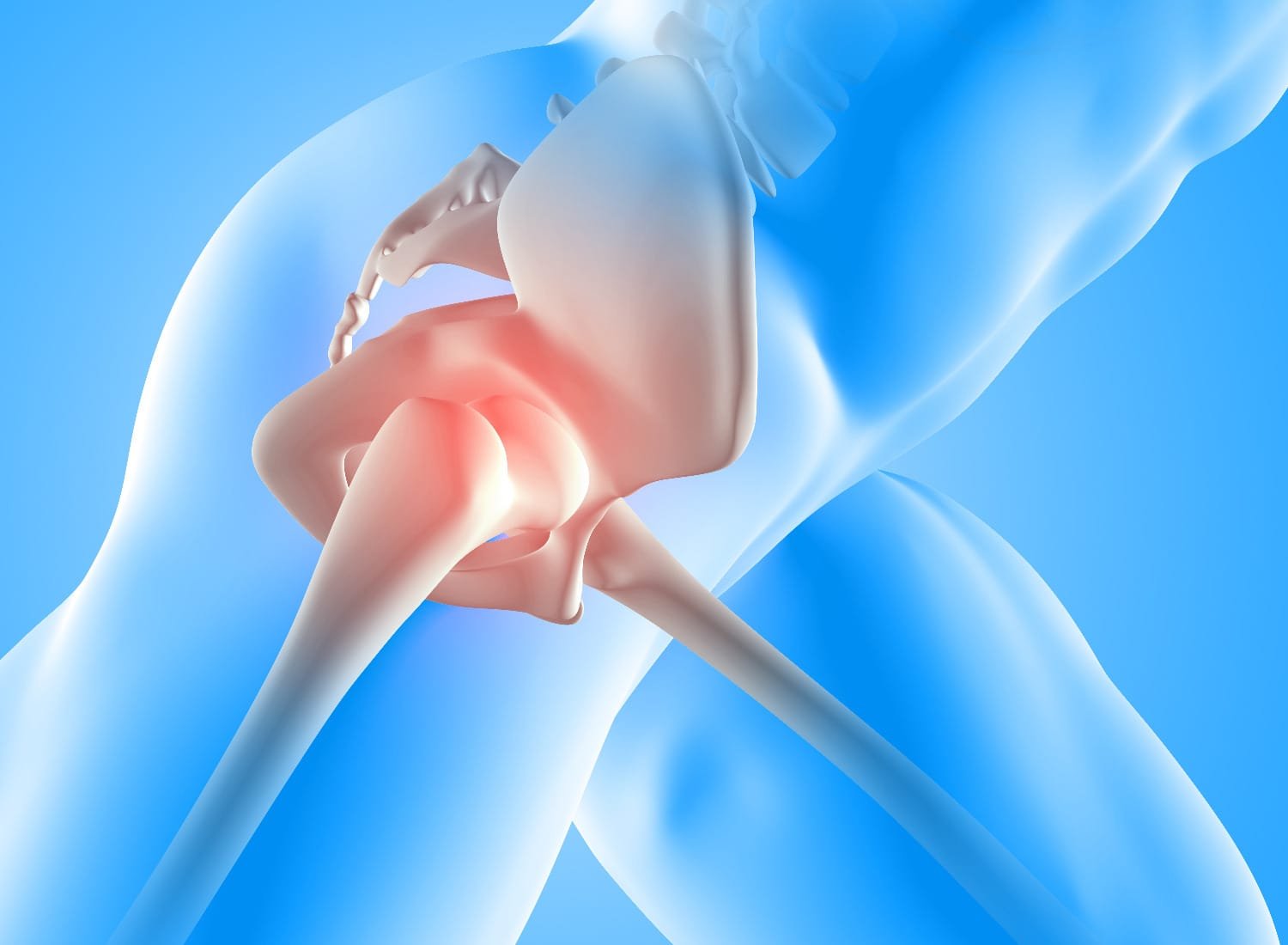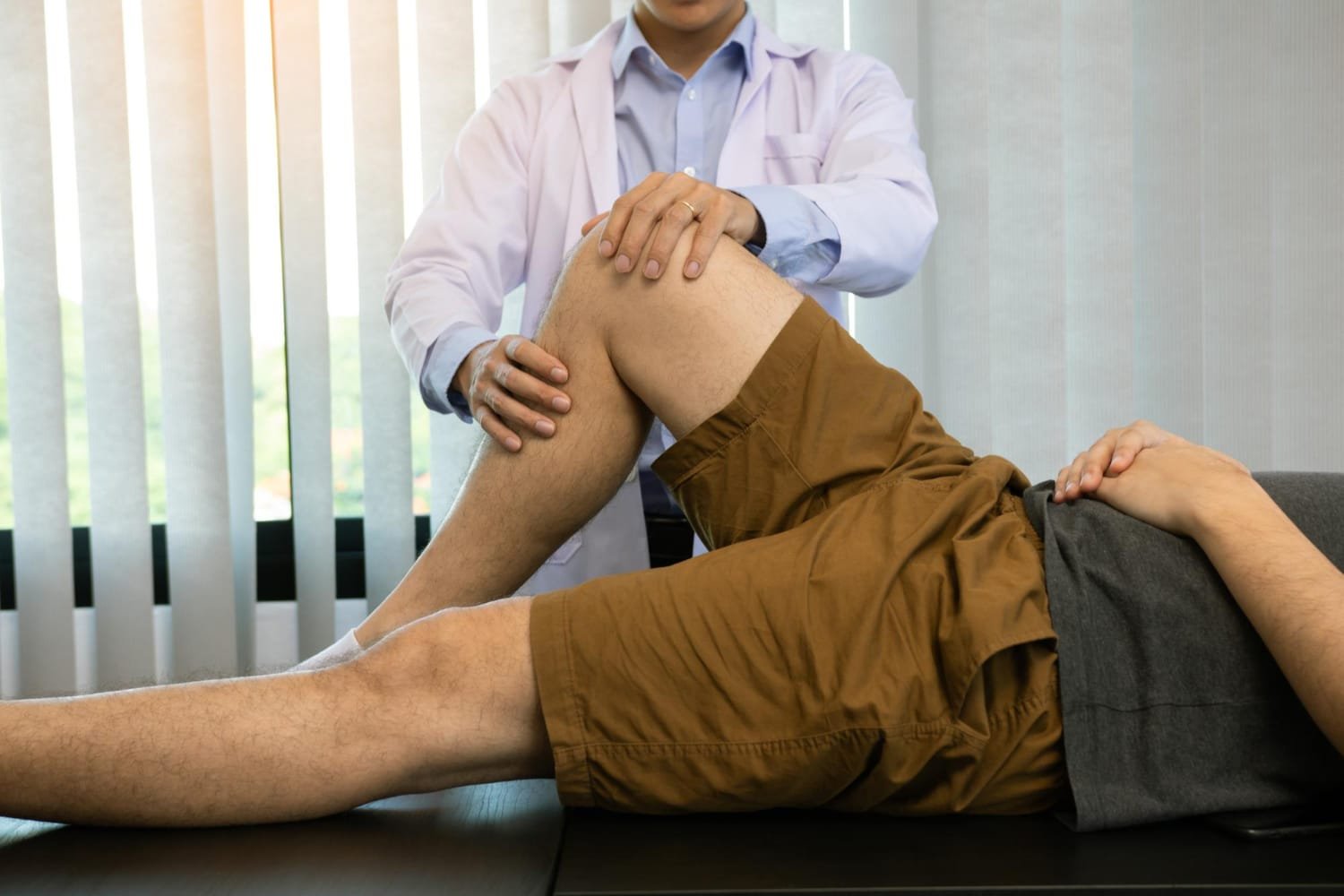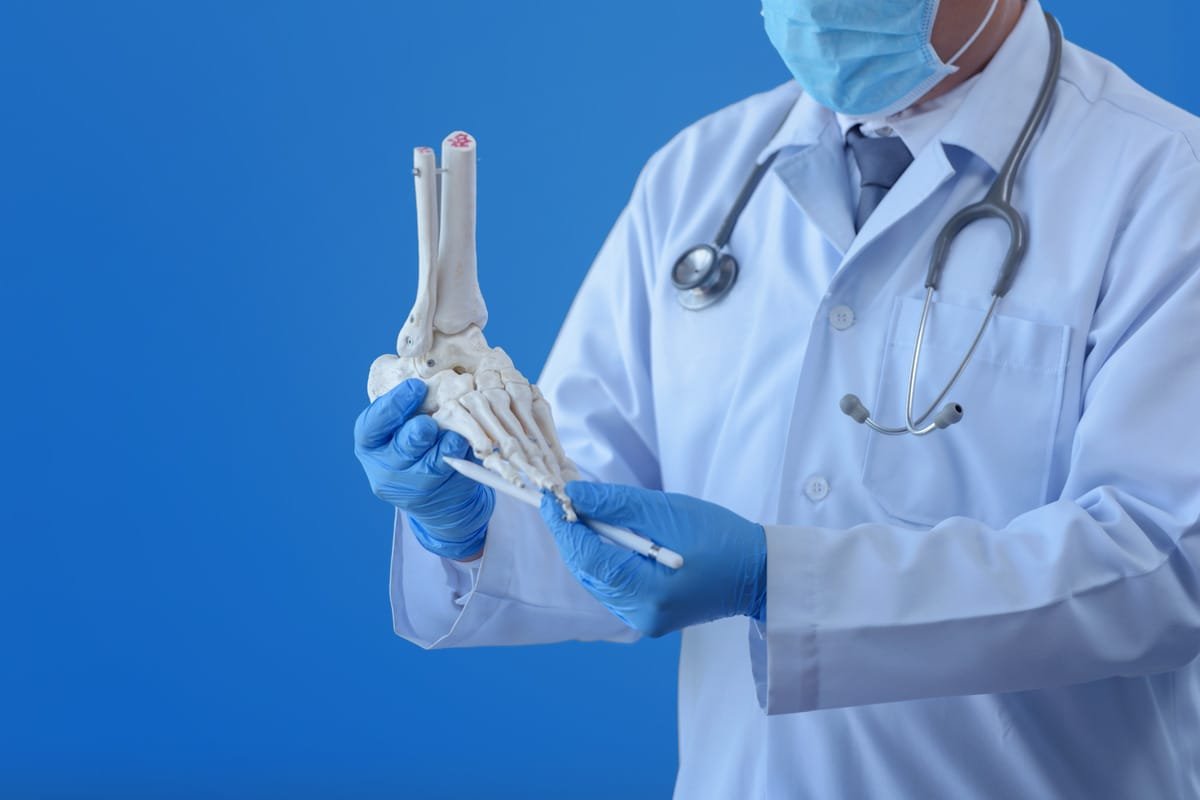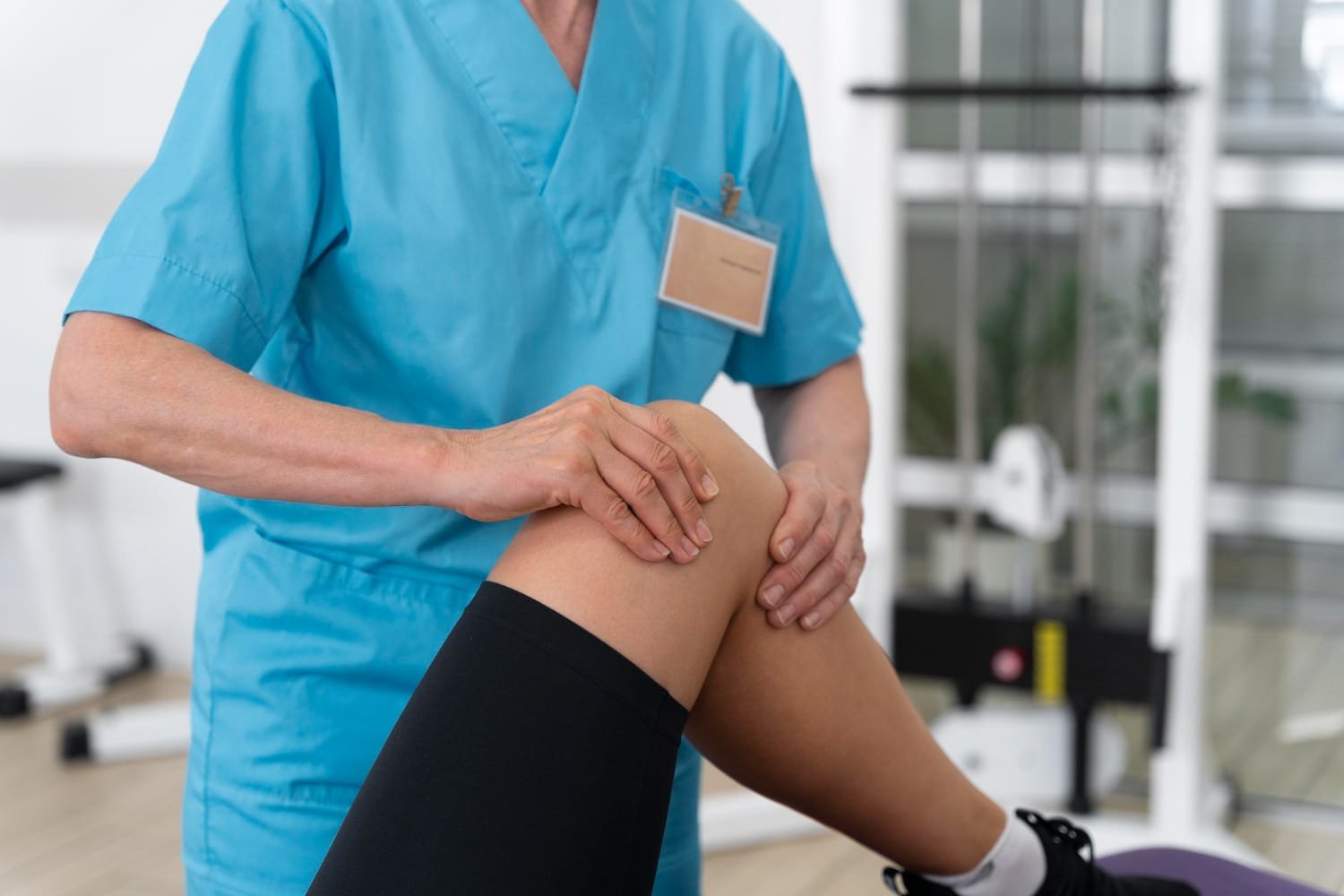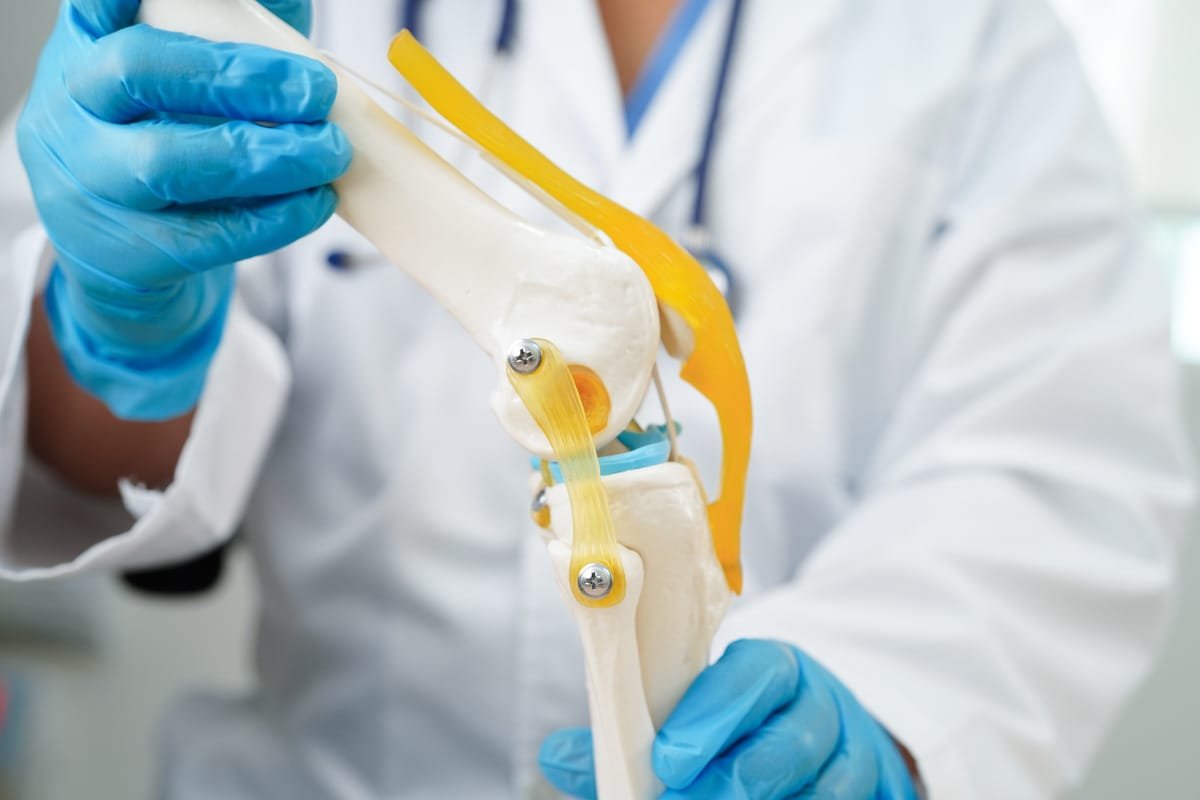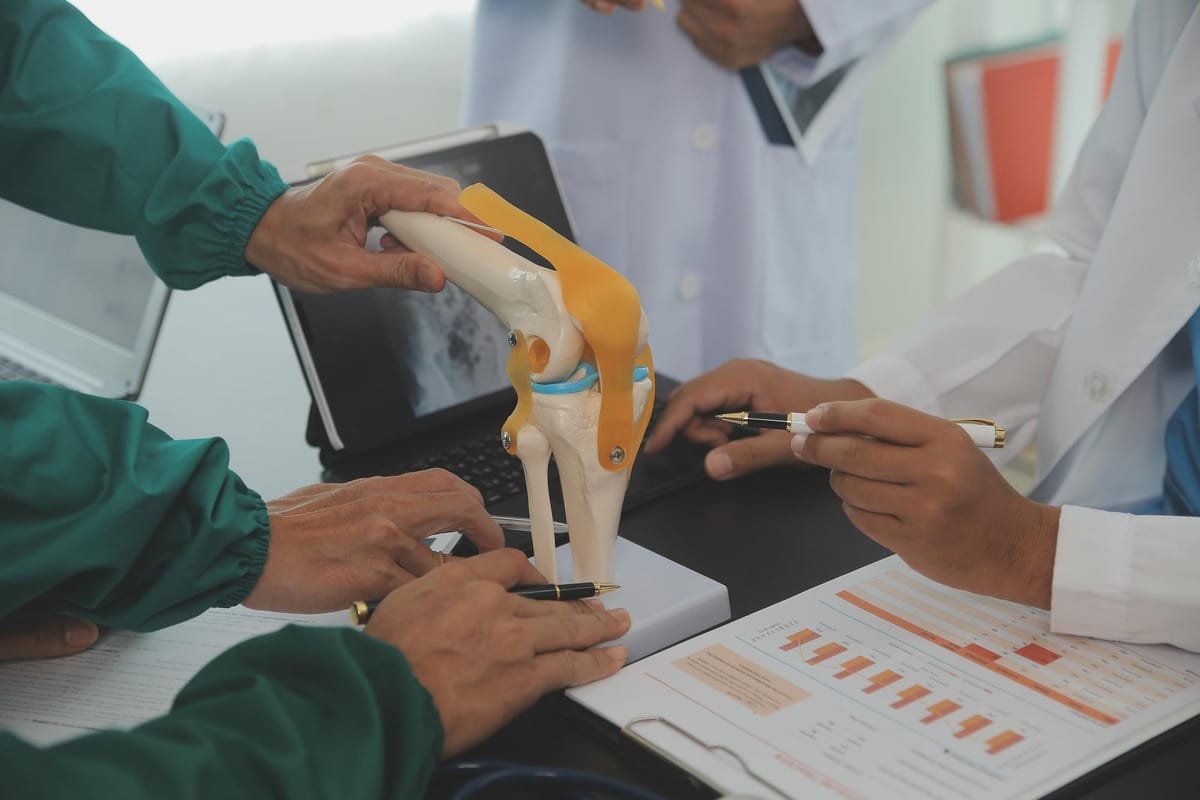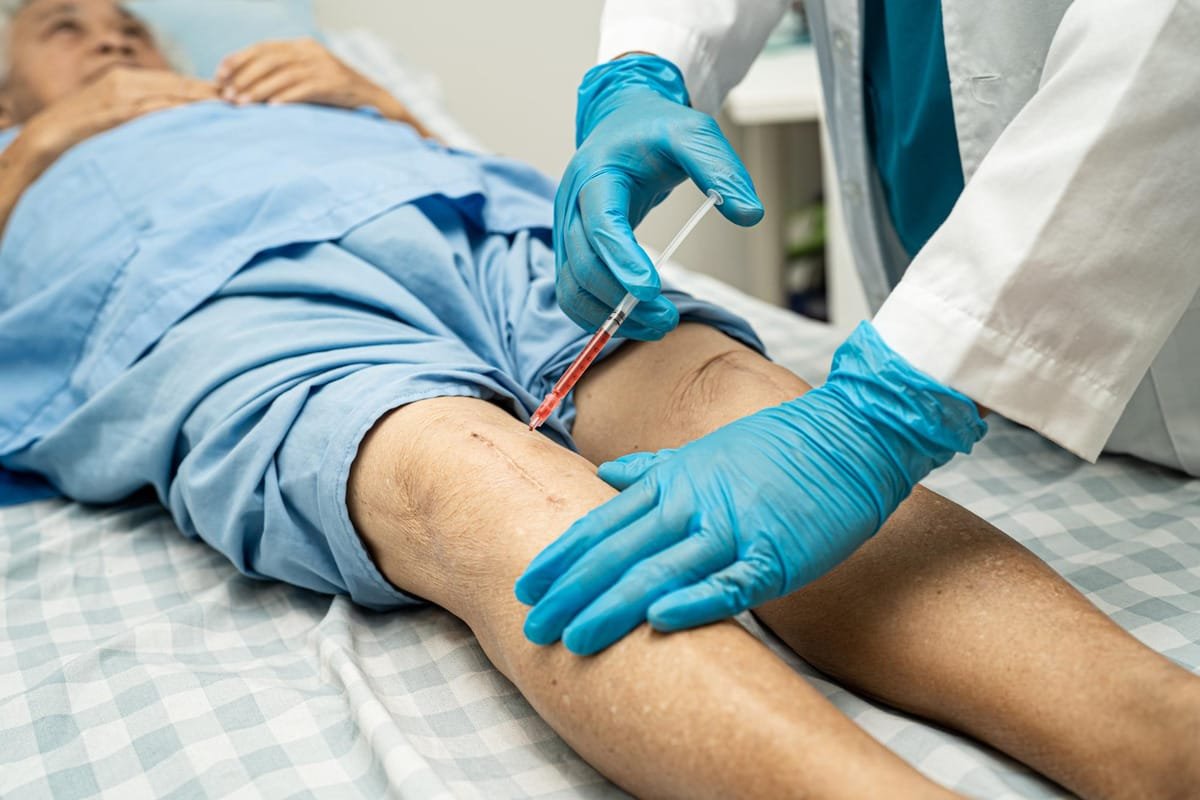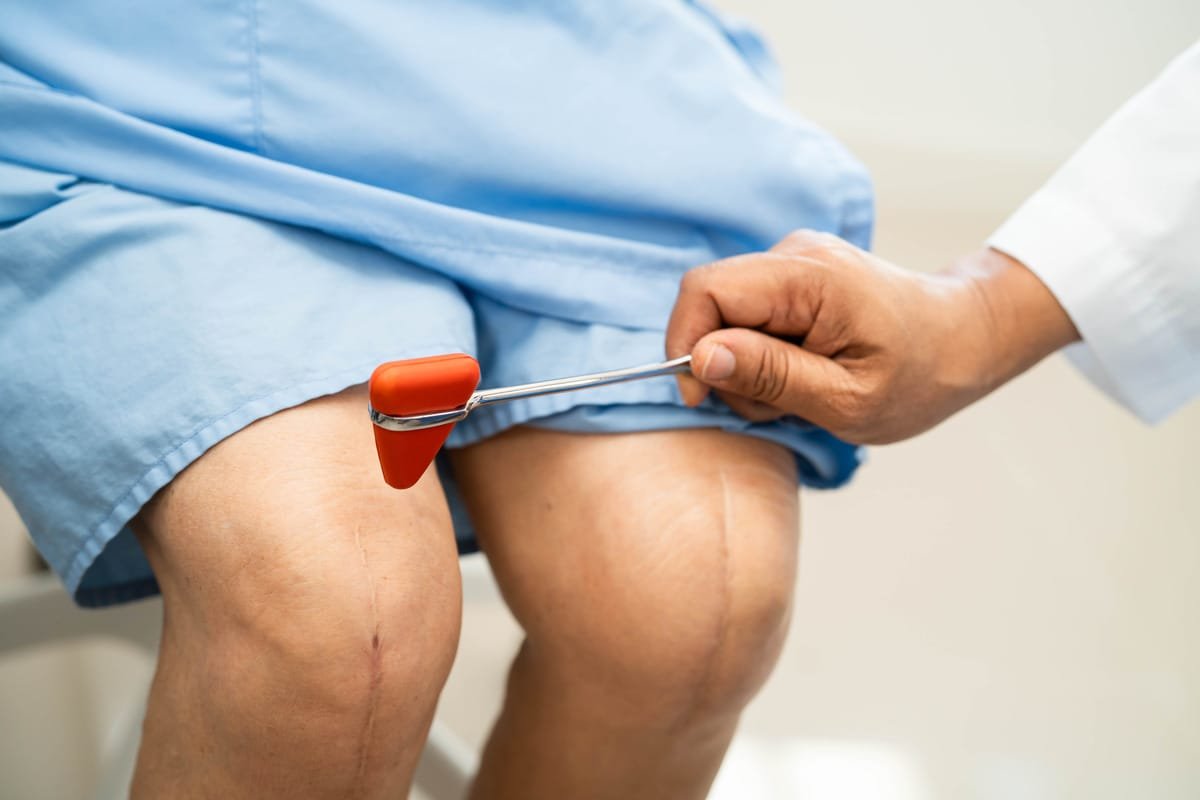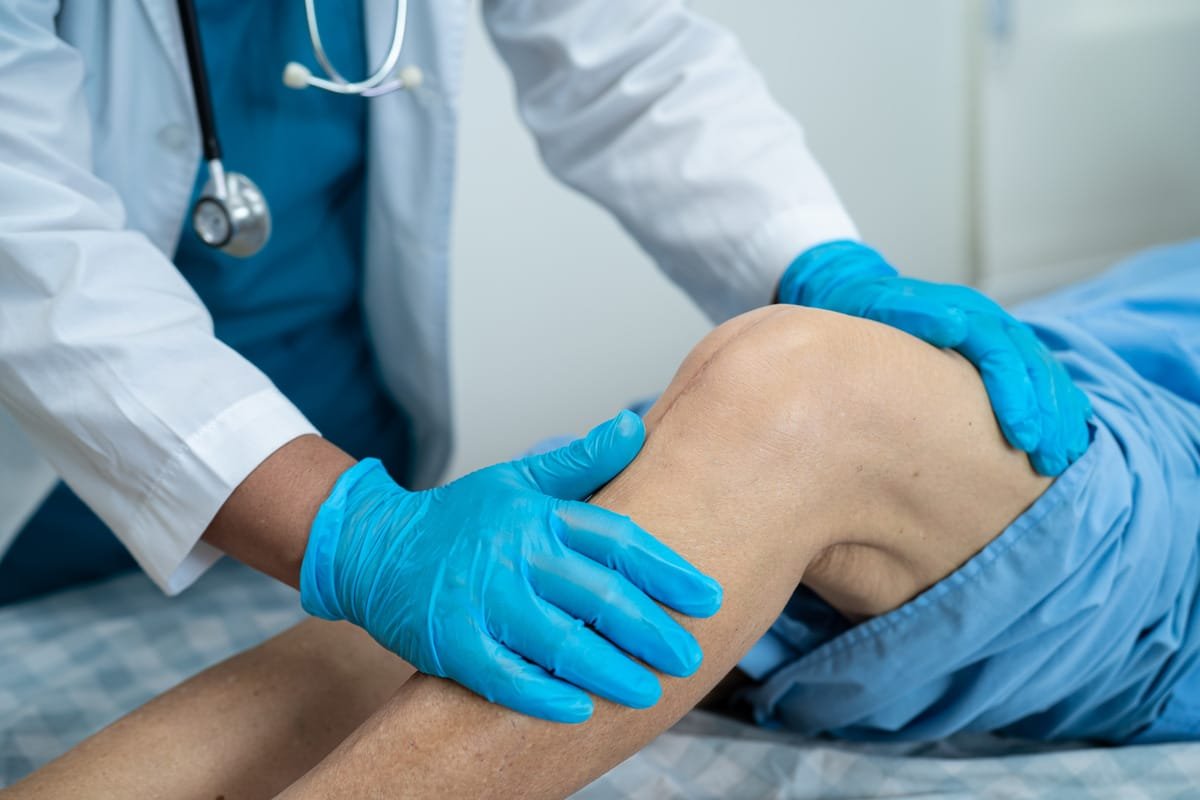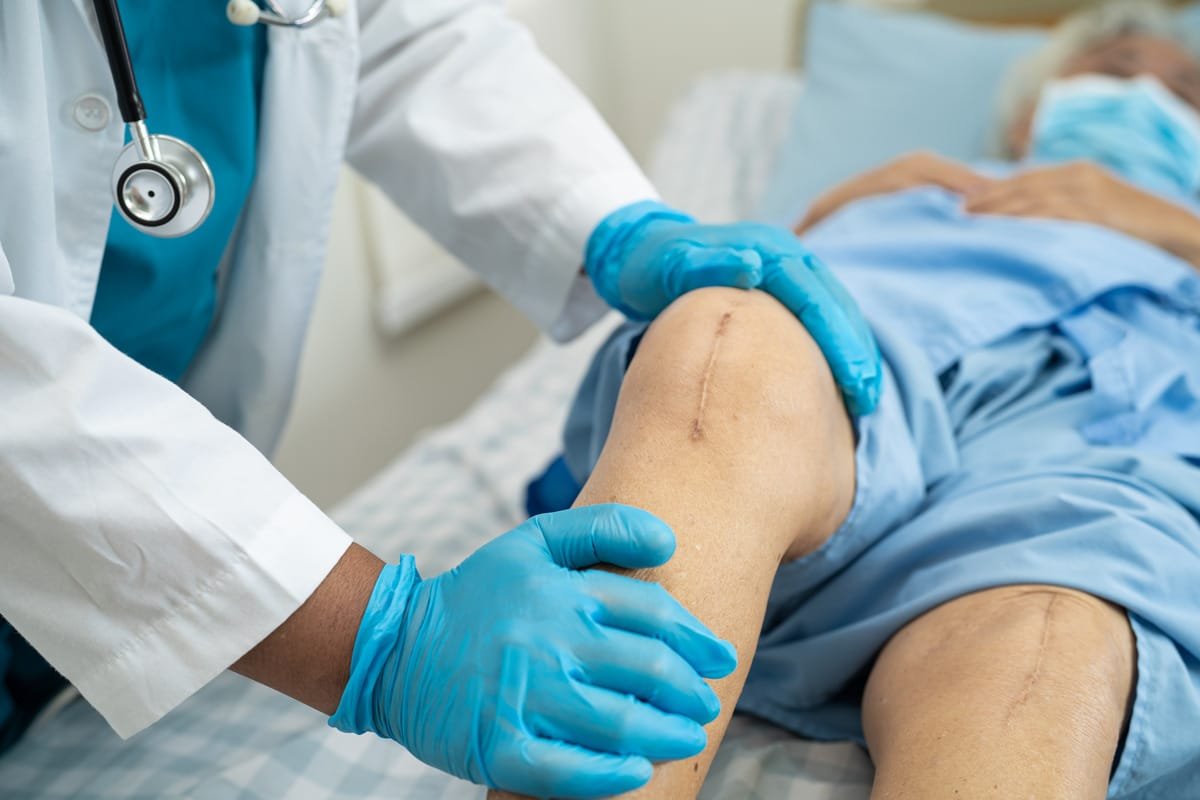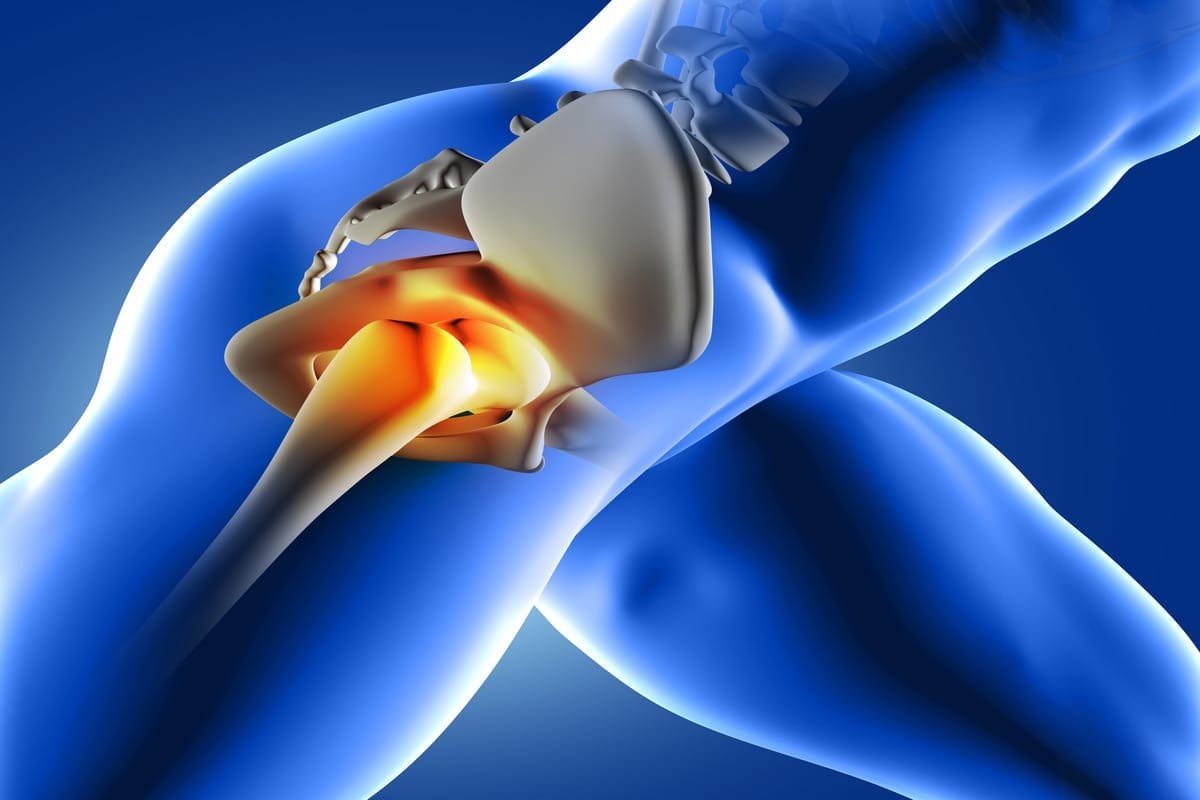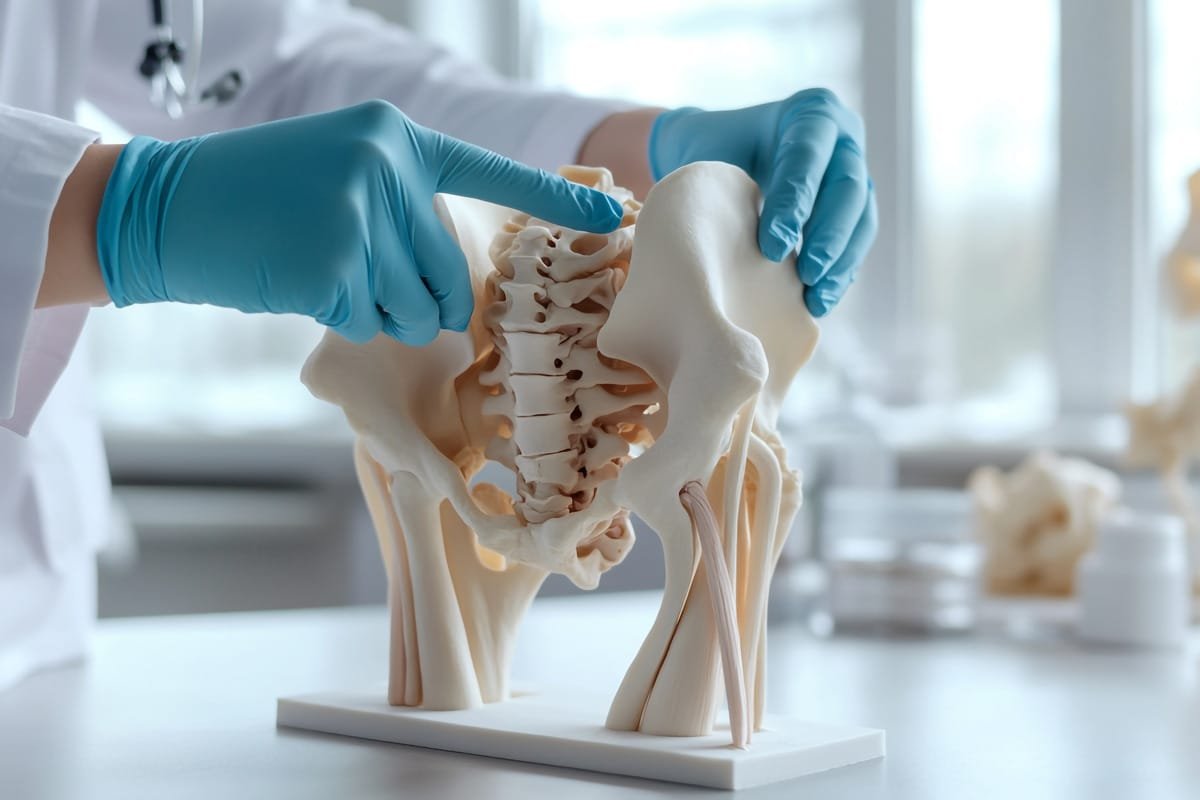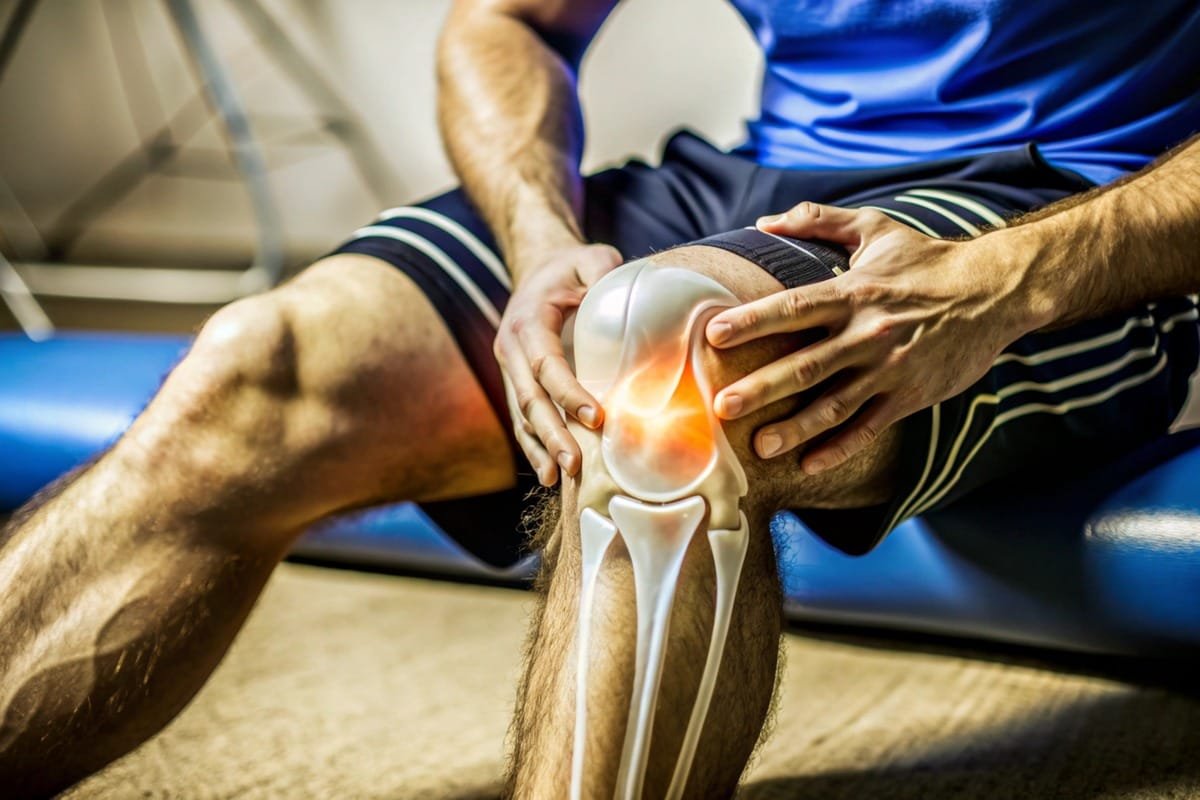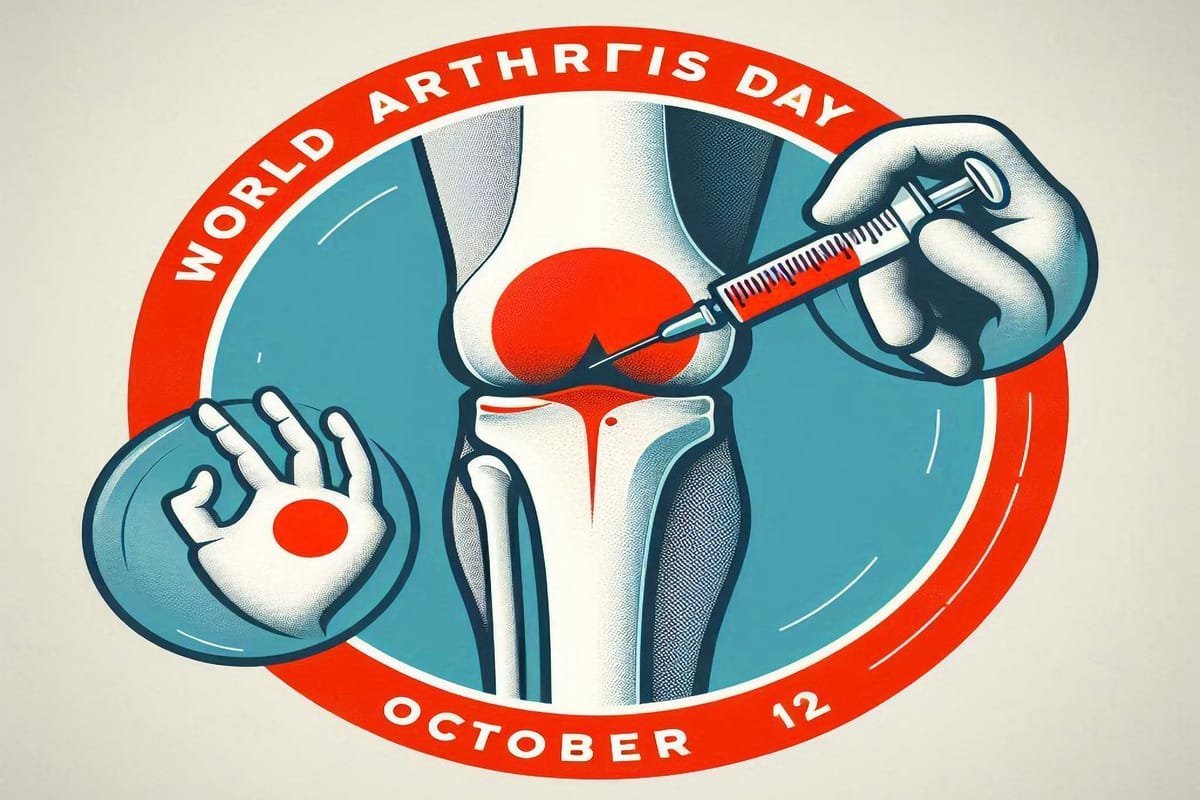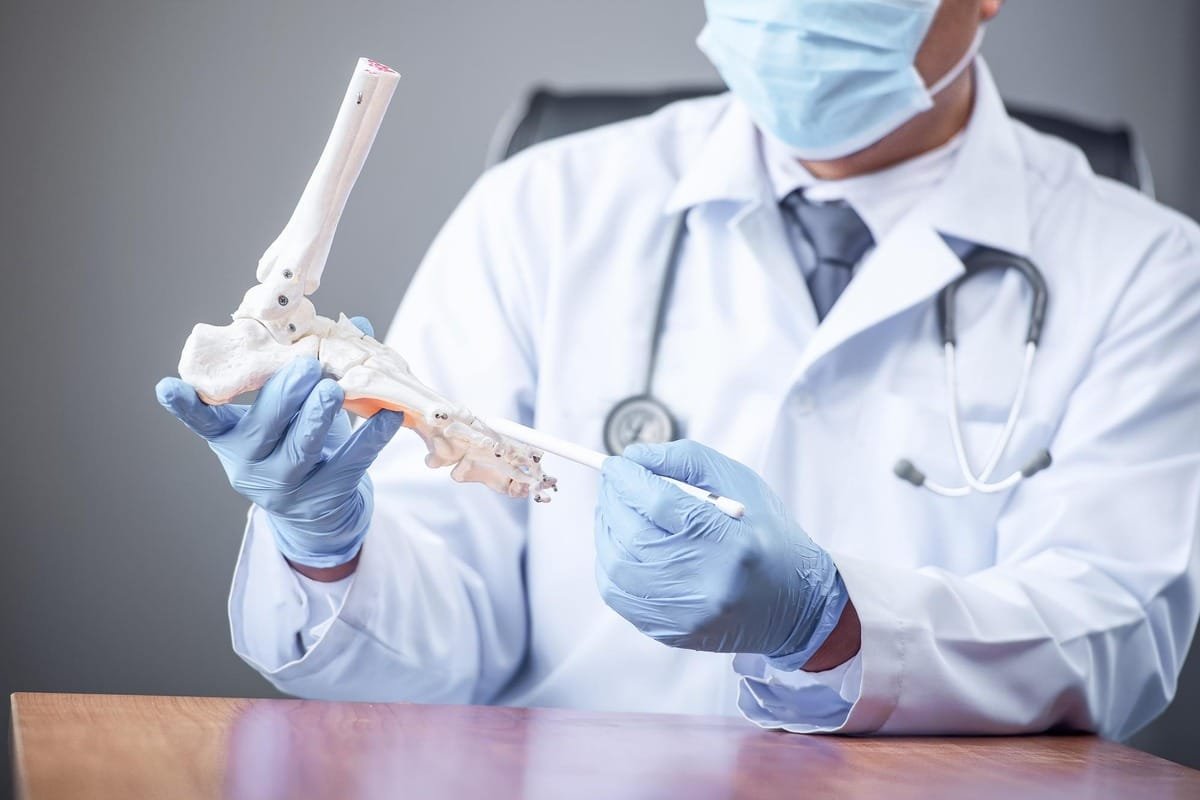
Orthopedic Surgeons: 7 Things You Need to Know
December 6, 2024When it comes to treating musculoskeletal issues, orthopedic surgeons play a critical role in helping patients achieve pain relief and restore mobility. Whether you’re dealing with a sports injury, chronic joint pain, or a debilitating condition like arthritis, an orthopedic surgeon can offer a variety of treatment options. Among the best in the field, Dr. Deepak Mishra stands out as a leading robotic knee replacement surgeon in Faridabad. Renowned for his expertise and advanced surgical techniques, Dr. Deepak Mishra has transformed the lives of countless patients by delivering exceptional outcomes and innovative care.
If you are considering orthopedic care or simply want to learn more about this field, here are 7 essential things you need to know about orthopedic surgeons.
1. What Orthopedic Surgeons Do
Orthopedic surgeons are medical professionals who specialize in diagnosing, treating, and preventing musculoskeletal disorders. These conditions can affect the bones, joints, ligaments, tendons, muscles, and nerves. Orthopedic surgeons can perform surgery, but many also treat conditions with non-surgical methods such as physical therapy, medication, and injections. Some of the most common conditions treated by orthopedic surgeons include:
- Arthritis
- Fractures and fractures requiring surgical repair
- Sports injuries like torn ligaments or tendons
- Spinal conditions such as scoliosis or disc herniations
- Carpal tunnel syndrome
- Joint replacement surgeries
2. When to See an Orthopedic Surgeon
While not every musculoskeletal issue requires a visit to an orthopedic surgeon, there are several signs that indicate it might be time to consult one:
- Persistent pain: If joint or muscle pain lasts for several weeks and doesn’t improve with rest or over-the-counter medications, an orthopedic surgeon can evaluate the cause and recommend appropriate treatment.
- Limited mobility: Difficulty moving or a noticeable decrease in flexibility can indicate an underlying problem such as arthritis, tendinitis, or a torn ligament.
- Acute injury: Sudden, severe injuries such as fractures, dislocations, or ligament tears require prompt attention. In many cases, orthopedic surgeons can help to stabilize and treat these injuries.
- Chronic conditions: If you suffer from chronic conditions like osteoarthritis, degenerative disc disease, or scoliosis, an orthopedic surgeon can help manage the symptoms and potentially recommend surgery if necessary.
3. The Different Types of Orthopedic Surgeons
Orthopedic surgery is a diverse field, and there are many subspecialties within it. Here are some of the primary types of orthopedic surgeons you might encounter:
- Sports Medicine Orthopedic Surgeons: Specialize in treating sports-related injuries, including fractures, sprains, strains, and tendonitis. They also work with athletes to prevent injuries.
- Spine Surgeons: Specialize in conditions affecting the spine, including herniated discs, scoliosis, and spinal stenosis.
- Joint Replacement Surgeons: Focus on replacing damaged joints, typically in the hips, knees, and shoulders, with artificial implants. Dr. Deepak Mishra is a pioneer in robotic knee replacement surgeries, offering precise and minimally invasive solutions.
- Pediatric Orthopedic Surgeons: Specialize in treating musculoskeletal issues in children, such as congenital deformities, scoliosis, and fractures.
- Trauma Surgeons: Specialize in the treatment of traumatic injuries, such as fractures, dislocations, and severe soft tissue injuries.
4. Non-Surgical Treatment Options
Not all orthopedic conditions require surgery. Many orthopedic surgeons focus on non-surgical treatments to help patients manage their symptoms. Some common non-surgical treatments include:
- Physical Therapy: Targeted exercises and stretches to improve strength, flexibility, and mobility. Physical therapy is often used in conjunction with other treatments to help restore function.
- Medications: Anti-inflammatory drugs (NSAIDs), pain relievers, or corticosteroid injections may be prescribed to manage pain and inflammation.
- Bracing and Splinting: In some cases, a brace or splint may be recommended to immobilize a joint or protect a healing bone.
- Injections: Steroid injections or hyaluronic acid injections can provide relief from inflammation and pain, particularly in the joints.
5. Surgical Procedures Performed by Orthopedic Surgeons
When surgery is necessary, orthopedic surgeons are highly skilled in performing various procedures that can help alleviate pain and restore function. Some common orthopedic surgeries include:
- Arthroscopy: A minimally invasive procedure where a small camera is inserted into a joint to diagnose and treat problems such as cartilage damage, torn ligaments, or inflammation.
- Joint Replacement Surgery: Involves removing a damaged joint and replacing it with an artificial joint. The most common types of joint replacements are hip and knee replacements. Dr. Deepak Mishra’s robotic knee replacement surgeries in Faridabad set a benchmark for precision and patient recovery.
- Spinal Surgery: This may include procedures to address herniated discs, spinal fusion, or laminectomy to relieve pressure on the spinal cord or nerves.
- Fracture Repair: Surgical intervention may be necessary for complex fractures that cannot heal properly on their own. This often involves the use of pins, plates, or screws to stabilize the bone.
- Tendon and Ligament Repair: Surgeries to repair torn ligaments or tendons, often after sports injuries.
6. How to Choose the Right Orthopedic Surgeon
Choosing the right orthopedic surgeon is essential to achieving the best possible outcome. Here are a few tips for making an informed decision:
- Referrals and Recommendations: Ask your primary care physician or a trusted healthcare provider for recommendations. You can also talk to family and friends who have had similar procedures.
- Specialization: Depending on your condition, it’s important to choose a surgeon who specializes in the area of concern, such as sports medicine, joint replacement, or spine surgery. For example, Dr. Deepak Mishra’s specialization in robotic knee replacement ensures cutting-edge care and outstanding results.
- Experience and Credentials: Check the surgeon’s credentials, including their board certification, years of practice, and any specialized training. Don’t hesitate to ask about their experience with your specific condition.
- Hospital Affiliation: Ensure that the surgeon is affiliated with a reputable hospital or medical center, as this can affect the quality of care you receive.
- Second Opinion: If you’re unsure about the recommended treatment plan or surgery, it’s always a good idea to seek a second opinion.
7. Recovery and Rehabilitation
After surgery or treatment, recovery can take time, and rehabilitation is often a critical component of the healing process. Depending on the procedure, you may need to undergo physical therapy, take medications for pain management, and follow specific guidelines to ensure a smooth recovery. Some general tips for recovery include:
- Follow your doctor’s instructions: Adhering to the post-surgery guidelines will speed up recovery and prevent complications.
- Gradual return to activity: Depending on the type of surgery, it may take several weeks or months before you can return to your usual activities. Avoid rushing the recovery process.
- Physical therapy: Engage in physical therapy as prescribed to regain strength, mobility, and function.
Conclusion
Orthopedic surgeons are essential healthcare professionals who provide invaluable care for those dealing with musculoskeletal conditions. Whether you are facing a sports injury, chronic pain, or a complex musculoskeletal condition, an orthopedic surgeon can guide you through the treatment options available and help you restore your quality of life. With experts like Dr. Deepak Mishra leading the way in robotic knee replacement surgery in Faridabad, patients have access to world-class care and advanced treatment options. Understanding the different aspects of orthopedic care—from the types of surgeons and treatments to recovery—can help you make more informed decisions about your health and treatment. If you think you may need an orthopedic surgeon, don’t hesitate to consult one to explore your options and find the best path forward for your condition.
Recent Blogs
-
 ACL Tears in Athletes: Symptoms, Treatment Options & Recovery
ACL Tears in Athletes: Symptoms, Treatment Options & Recovery- 19, November 2025
-
 Sports Injuries That Often Lead to Knee Replacement
Sports Injuries That Often Lead to Knee Replacement- 19, November 2025
-
 Orthopedic Care for Elderly Patients — A Complete Guide
Orthopedic Care for Elderly Patients — A Complete Guide- 12, November 2025
-
 How Long Do Knee Implants Last? (10–20 Year Longevity Guide)
How Long Do Knee Implants Last? (10–20 Year Longevity Guide)- 12, November 2025
-
 Importance of Early Diagnosis in Bone and Joint Problems
Importance of Early Diagnosis in Bone and Joint Problems- 28, October 2025
-
 Best Treatment Options for Sports Injuries
Best Treatment Options for Sports Injuries- 28, October 2025
-
 The Difference Between ACL Tear, Sprain, and Rupture
The Difference Between ACL Tear, Sprain, and Rupture- 16, October 2025
-
 Post-ACL Surgery Do’s and Don’ts
Post-ACL Surgery Do’s and Don’ts- 16, October 2025
-
 Early Signs You Might Have an ACL Injury (and When to See a Doctor)
Early Signs You Might Have an ACL Injury (and When to See a Doctor)- 16, October 2025
-
 Does Insurance Cover Robotic Knee Replacement Surgery?
Does Insurance Cover Robotic Knee Replacement Surgery?- 6, October 2025
-
 When Can You Return to Sports After Robotic Knee Replacement?
When Can You Return to Sports After Robotic Knee Replacement?- 6, October 2025
-
 Impact of Obesity on Knee Replacement Surgery and Recovery
Impact of Obesity on Knee Replacement Surgery and Recovery- 30, September 2025
-
 Early vs. Delayed Knee Replacement: Which Is Better?
Early vs. Delayed Knee Replacement: Which Is Better?- 30, September 2025
-
 How Durable Are Knee Implants? A Complete Guide
How Durable Are Knee Implants? A Complete Guide- 24, September 2025
-
 Can You Play Sports After Knee Replacement Surgery?
Can You Play Sports After Knee Replacement Surgery?- 24, September 2025
-
 Key Benefits of Revision Hip Replacement You Should Know
Key Benefits of Revision Hip Replacement You Should Know- 15, September 2025
-
 Revision Hip Replacement vs. Primary Hip Replacement: Key Differences
Revision Hip Replacement vs. Primary Hip Replacement: Key Differences- 15, September 2025
-

-
 Total Knee Replacement Complications: What You Need to Know
Total Knee Replacement Complications: What You Need to Know- 5, September 2025
-
 Can You Play Sports After Hip Replacement Surgery?
Can You Play Sports After Hip Replacement Surgery?- 26, August 2025
-
 Preparing for Knee Replacement: Do’s and Don’ts Before Surgery
Preparing for Knee Replacement: Do’s and Don’ts Before Surgery- 26, August 2025
-

-
 What to Know About Knee Replacement Revision Surgery
What to Know About Knee Replacement Revision Surgery- 18, August 2025
-
 Cost of Hip Replacement in India – What Patients Should Know
Cost of Hip Replacement in India – What Patients Should Know- 11, August 2025
-

-
 Who Is the Best Orthopedic Doctor for Sports Injuries?
Who Is the Best Orthopedic Doctor for Sports Injuries?- 27, July 2025
-
 Success Rate of Robotic Knee Replacement in India
Success Rate of Robotic Knee Replacement in India- 27, July 2025
-
 Why Surgeons Are Switching to Robotic Knee Replacements
Why Surgeons Are Switching to Robotic Knee Replacements- 15, July 2025
-
 Do’s and Don’ts After Knee Replacement Surgery
Do’s and Don’ts After Knee Replacement Surgery- 15, July 2025
-
 Best Robotic Knee Replacement in India
Best Robotic Knee Replacement in India- 7, July 2025
-
 Affordable Robotic Knee Replacement in India
Affordable Robotic Knee Replacement in India- 7, July 2025
-

-

-

-

-

-

-

-
 Orthopedic Meaning, Definition, Types, and More
Orthopedic Meaning, Definition, Types, and More- 6, June 2025
-
 What Are the Most Common Orthopedic Surgeries?
What Are the Most Common Orthopedic Surgeries?- 24, May 2025
-
 What Does an Orthopedic Doctor Do?
What Does an Orthopedic Doctor Do?- 24, May 2025
-

-

-

-
 Best Orthopedic Doctor for Knee Pain in Faridabad
Best Orthopedic Doctor for Knee Pain in Faridabad- 12, May 2025
-
 How to Prevent Knee Pain with Orthopedic Expert Tips
How to Prevent Knee Pain with Orthopedic Expert Tips- 29, April 2025
-

-
 Best Orthopedic Treatment in Faridabad: What You Should Know
Best Orthopedic Treatment in Faridabad: What You Should Know- 29, April 2025
-

-

-
 Best Knee Replacement Surgeon in Mathura
Best Knee Replacement Surgeon in Mathura- 14, April 2025
-
 Best Knee Replacement Surgeon in Hodal
Best Knee Replacement Surgeon in Hodal- 14, April 2025
-
 Best Knee Replacement Surgeon in Palwal
Best Knee Replacement Surgeon in Palwal- 14, April 2025
-

-

-

-
 Benefits of Minimally Invasive Knee Surgery
Benefits of Minimally Invasive Knee Surgery- 24, March 2025
-
 Types of Knee Implants
Types of Knee Implants- 17, March 2025
-
 Best knee Replacement Surgeon in India
Best knee Replacement Surgeon in India- 17, March 2025
-

-
 How to Recover Quickly After Knee Replacement Surgery
How to Recover Quickly After Knee Replacement Surgery- 10, March 2025
-

-

-

-
 Minimally Invasive Arthroplasty: Benefits and Recovery Advantages
Minimally Invasive Arthroplasty: Benefits and Recovery Advantages- 24, February 2025
-
 Common Mistakes to Avoid After Joint Replacement Surgery
Common Mistakes to Avoid After Joint Replacement Surgery- 24, February 2025
-
 Choosing the Right Hip Replacement Surgeon: A Comprehensive Guide
Choosing the Right Hip Replacement Surgeon: A Comprehensive Guide- 17, February 2025
-
 Restoring Mobility: The Role of Knee Replacement Doctors
Restoring Mobility: The Role of Knee Replacement Doctors- 17, February 2025
-
 Orthopedic Trauma Care for Athletes
Orthopedic Trauma Care for Athletes- 6, February 2025
-
 Best Doctor for ACL Tear Treatment
Best Doctor for ACL Tear Treatment- 6, February 2025
-
 Best Sports Medicine Doctor for Knee Injuries
Best Sports Medicine Doctor for Knee Injuries- 6, February 2025
-
 Orthopedic Surgeons: 7 Things You Need to Know
Orthopedic Surgeons: 7 Things You Need to Know- 27, January 2025
-
 Best Joint Replacement Surgeon in Greater Faridabad
Best Joint Replacement Surgeon in Greater Faridabad- 27, January 2025
-
 Best Knee Replacement Surgeon in Palwal
Best Knee Replacement Surgeon in Palwal- 20, January 2025
-
 Best Knee Replacement Surgeon in South Delhi
Best Knee Replacement Surgeon in South Delhi- 20, January 2025
-
 Signs You May Need a Knee Replacement: Insights from a Surgeon
Signs You May Need a Knee Replacement: Insights from a Surgeon- 13, January 2025
-
 Restoring Mobility: The Role of Knee Replacement Doctor
Restoring Mobility: The Role of Knee Replacement Doctor- 13, January 2025
-
 Robotic Knee Replacement Surgery in Delhi
Robotic Knee Replacement Surgery in Delhi- 30, December 2024
-
 Robotic Orthopedic Surgery: Revolutionizing Joint Replacement and Repair
Robotic Orthopedic Surgery: Revolutionizing Joint Replacement and Repair- 30, December 2024
-
 Robotic Knee Replacement vs. Traditional Surgery: A Comparative Guide
Robotic Knee Replacement vs. Traditional Surgery: A Comparative Guide- 23, December 2024
-
 How to Make Joints Stronger: A Comprehensive Guide
How to Make Joints Stronger: A Comprehensive Guide- 23, December 2024
-
 Common Knee Conditions and How a Knee Surgeon Can Help
Common Knee Conditions and How a Knee Surgeon Can Help- 16, December 2024
-

-

-
 Orthopedic Surgeons: 7 Things You Need to Know
Orthopedic Surgeons: 7 Things You Need to Know- 6, December 2024
-
 Top 5 Mistakes After Knee Replacement
Top 5 Mistakes After Knee Replacement- 25, November 2024
-
 Advantages and Disadvantages of Robotic Knee Replacement
Advantages and Disadvantages of Robotic Knee Replacement- 25, November 2024
-
 When to See an Orthopedic Specialist: Recognizing Early Signs
When to See an Orthopedic Specialist: Recognizing Early Signs- 15, November 2024
-
 Benefits of Robotic-Assisted Knee Replacement Surgery
Benefits of Robotic-Assisted Knee Replacement Surgery- 15, November 2024
-
 Knee Replacement Surgery Cost
Knee Replacement Surgery Cost- 8, November 2024
-
 Best Robotic Knee Replacement Surgeon in Faridabad
Best Robotic Knee Replacement Surgeon in Faridabad- 8, November 2024
-

-
 Knee Replacement Surgery: Types, Benefits, and Recovery Timeline
Knee Replacement Surgery: Types, Benefits, and Recovery Timeline- 28, October 2024
-
 What is Osteoporosis? Symptoms, Causes, and Prevention
What is Osteoporosis? Symptoms, Causes, and Prevention- 21, October 2024
-
 Signs It’s Time for a Knee Replacement: When to Consult a Surgeon
Signs It’s Time for a Knee Replacement: When to Consult a Surgeon- 18, October 2024
-
 Understanding Different Types of Arthritis: Symptoms and Causes
Understanding Different Types of Arthritis: Symptoms and Causes- 11, October 2024
-
 Taking Care After Knee Replacement Surgery
Taking Care After Knee Replacement Surgery- 15, December 2022
-
 Amazing Ways to Get Relief from Arthritis Pain Naturally
Amazing Ways to Get Relief from Arthritis Pain Naturally- 2, December 2022
-

-
 How Does Fat Affect Arthritis?
How Does Fat Affect Arthritis?- 4, November 2022
